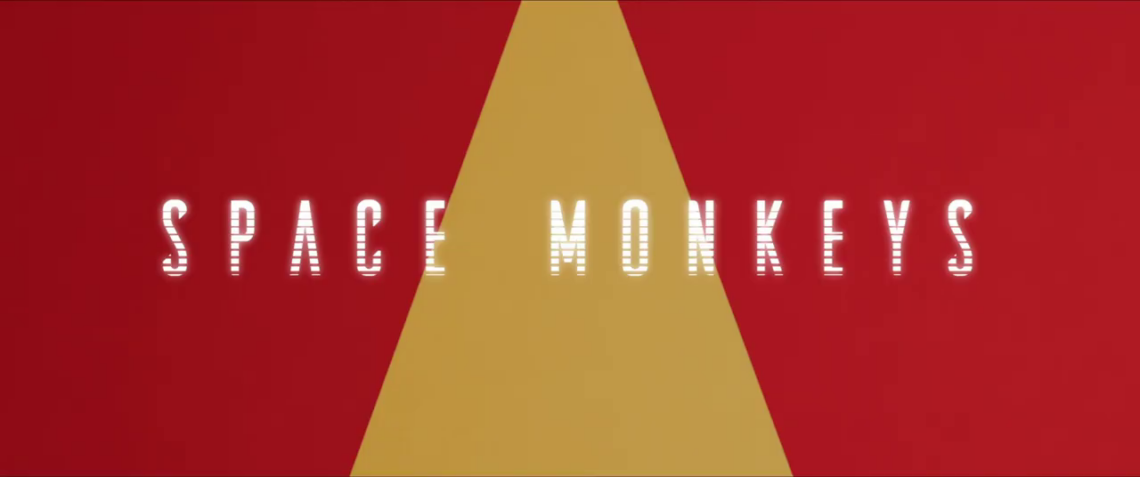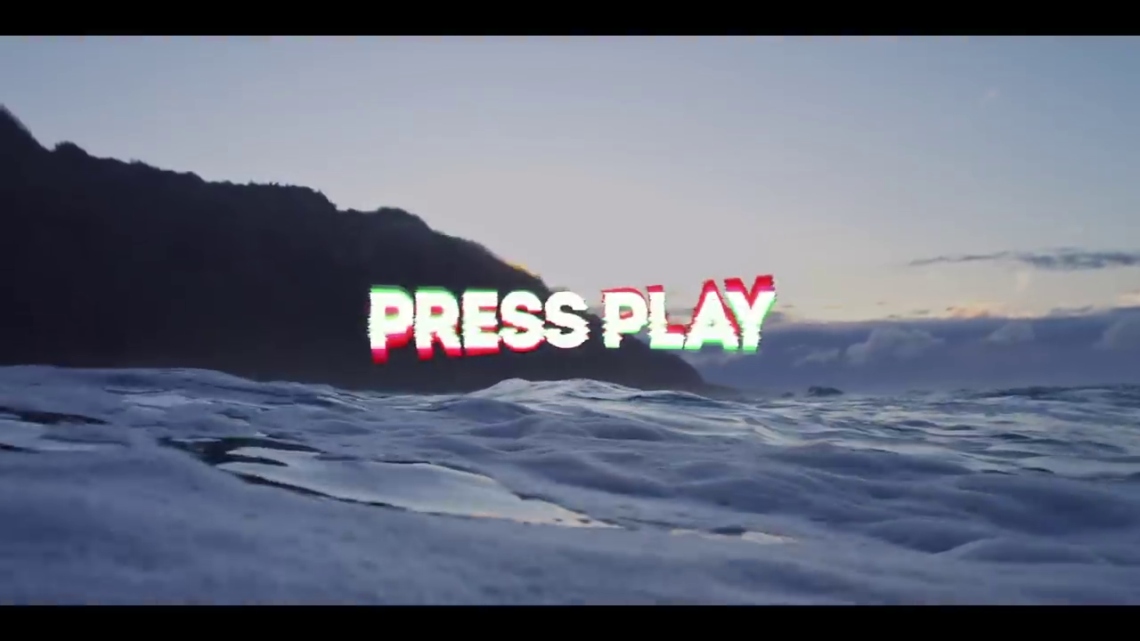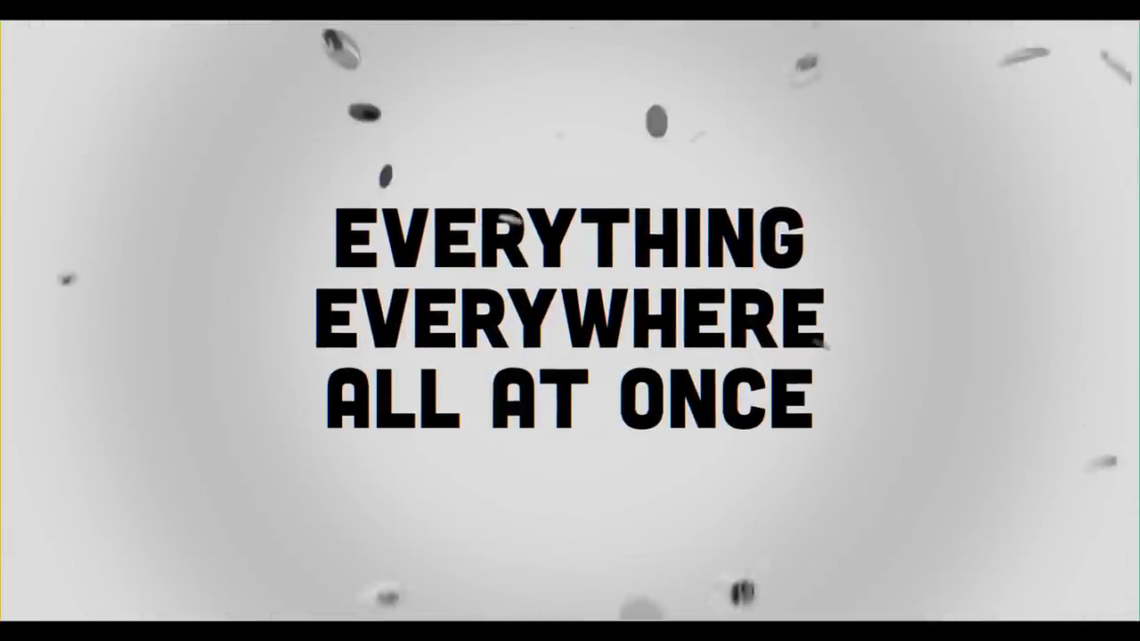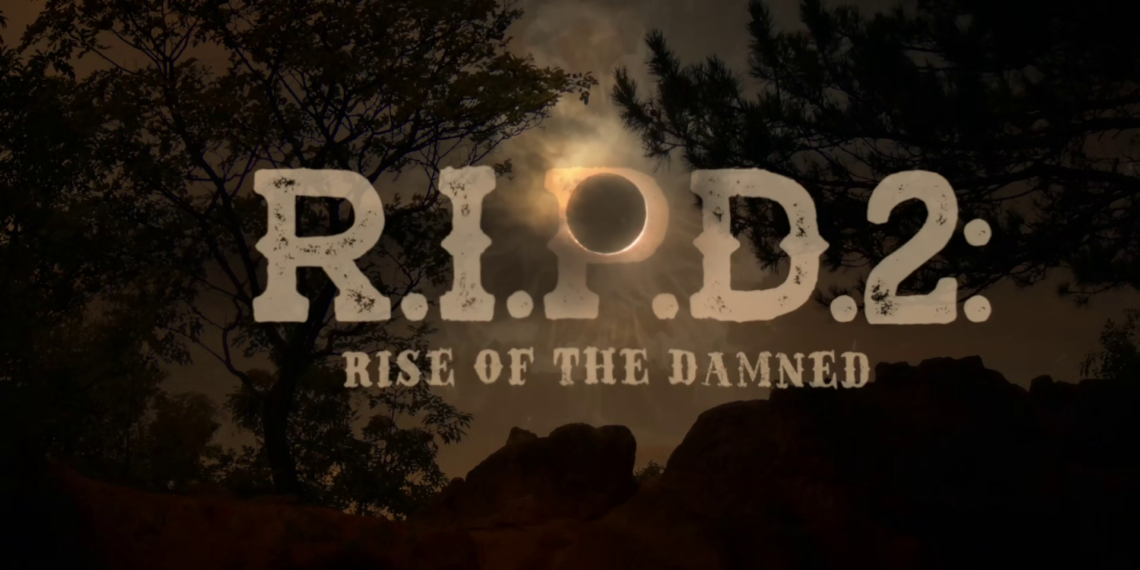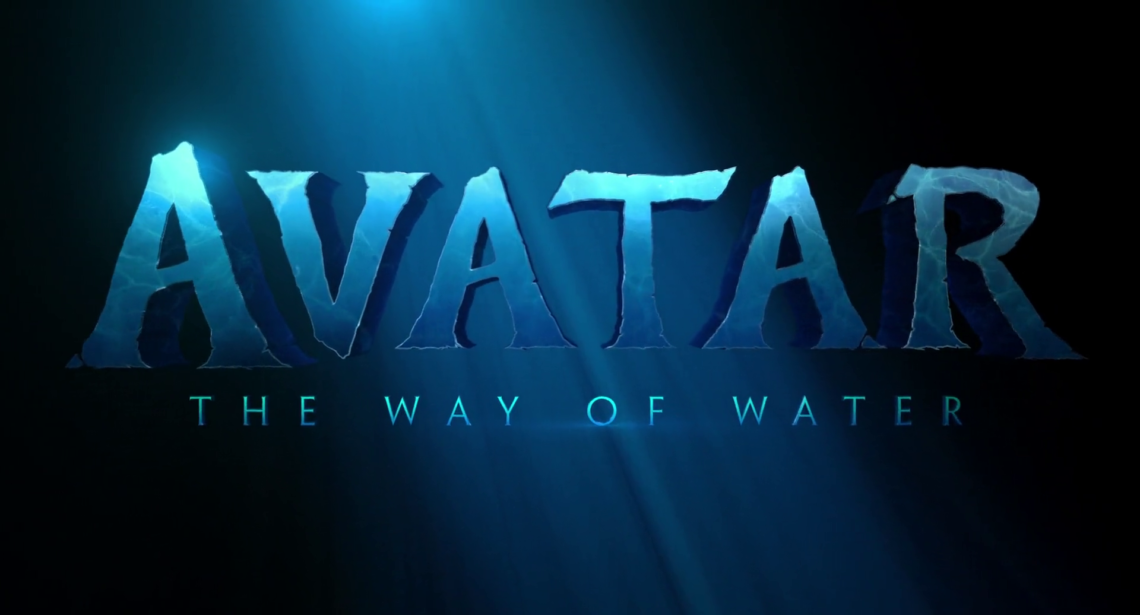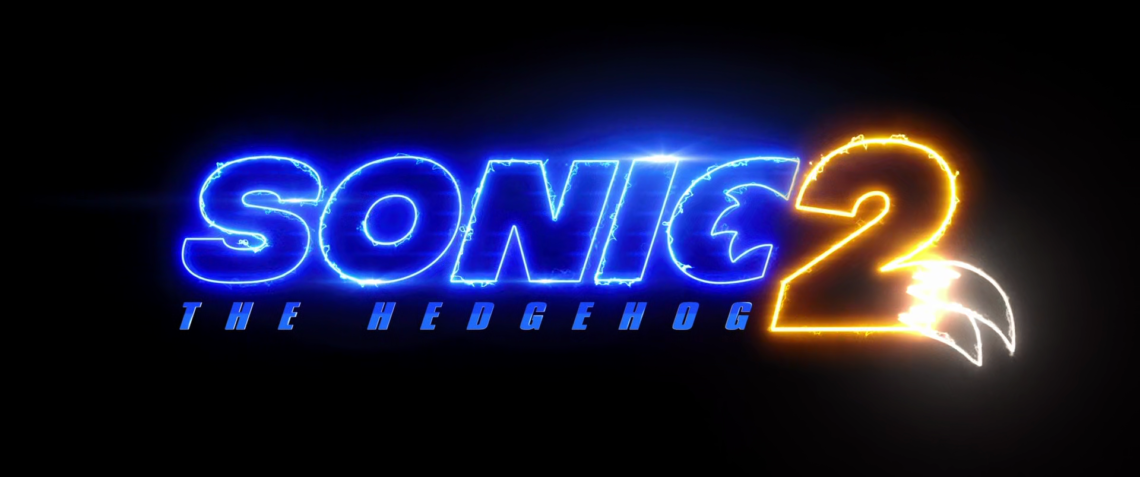-
#666 – The Devil Conspiracy (2022)










The Devil Conspiracy (2022)
Film review #666
Director: Nathan Frankowski
The Devil Conspiracy is a 2022 sci-fi film. Essentially, the plot concerns the battle between Michael and Lucifer, and a present-day cult seeking to revive Lucifer, leading Michael to take possession of a priest’s body to stop them. Sounds like a good old-fashioned religious epic right? The film starts off with an epic battle between Michael and Lucifer, ending with Lucifer being chained up in Hell. I think that’s what happened anyway, because it’s almost impossible to work out what happens amidst the extremely poor lighting that obviously hides the lack of scenery and the poor CG. Cutting away from this to the present day, we see a woman named Laura visiting her friend father Marconi at the Shroud of Turin on display. Meanwhile, a biotech firm has been successfully able to clone geniuses from history from their DNA, and auctioning the clones off to wealthy buyers, as demonstrated in a sequence in the Sistine Chapel where a child clone of Stradivari gives a violin performance. It’s very much Jurassic Park with geniuses instead of velociraptors, and it’s a premise that is at least interesting and has potential. However, it never gets mentioned again, as the biotech firm is secretly a Lucifer worshipping cult that wants to get the Shroud of Turin for themselves to get Jesus’s DNA, and recreate him as a vessel for Lucifer or something. They kidnap Laura to impregnate her or possess her with Lucifer…or both, it’s not really to clear, as she is imprisoned in the cult’s secret headquarters to give birth to the child, meanwhile Michael possesses the body of father Marconi, after he is killed during the theft of the Shroud, as he tries to find Laura and the child.
There’s obviously a lot of interesting elements that are at play here in the film, between religious epics and sci-fi cloning. Unfortunately when the film settles down, it mostly just revolves around Laura stuck in this barren facility occasionally trying to escape through clinical corridors, and Michael being imprisoned in Hell, and also trying to escape; although it’s quite difficult to tell again because of the severe lack of lighting. The core of the movie then just becomes a dull run-around with no real thrills, action or epic battles befitting the subject matter. The acting is less than stellar, the characters are fairly dull, and it drags on for nearly two hours just waiting for Laura to give birth. The worst aspect of the film is probably the lighting, particularly in the sequences in Hell, where you barely see anything that is going on, as mentioned earlier, to obviously obscure the lack of scenery detail and the bad special effects. These scenes are almost impossible to parse and work out just where they are set or what is going on. There’s obviously some thought gone into the colour of what little lighting there is to represent different characters, but it’s nowhere near enough. I can’t really find much positive to say about this film: it has some interesting concepts which it lays out in the outset, then just throws them all away to bring the film to a standstill for the remainder. It is, overall, a dull watch that fails to justify it’s runtime.
-
#660 – A Guide to Dating at the End of the World (2022)

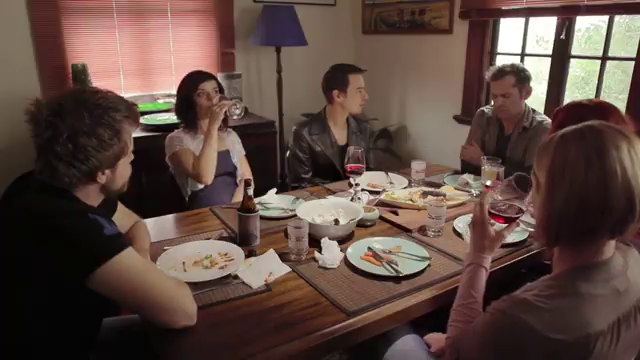
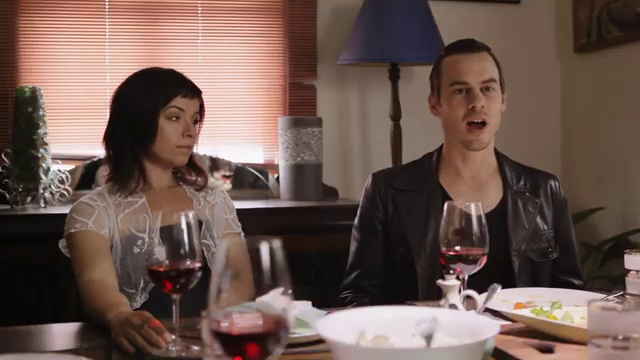
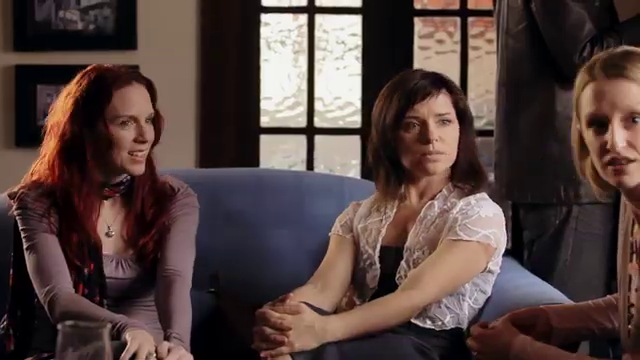

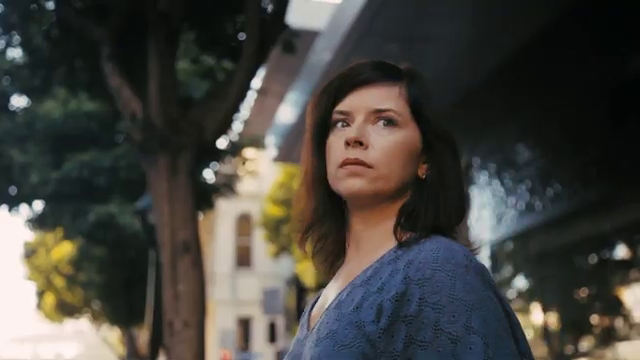
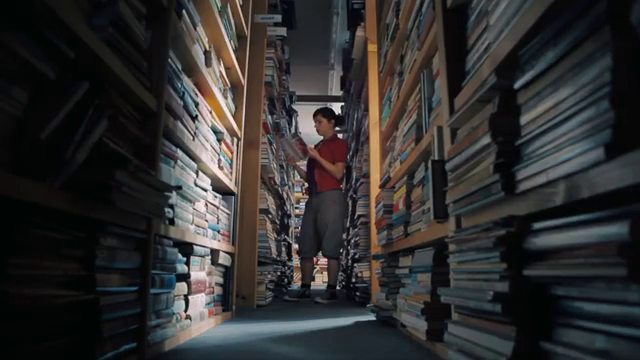
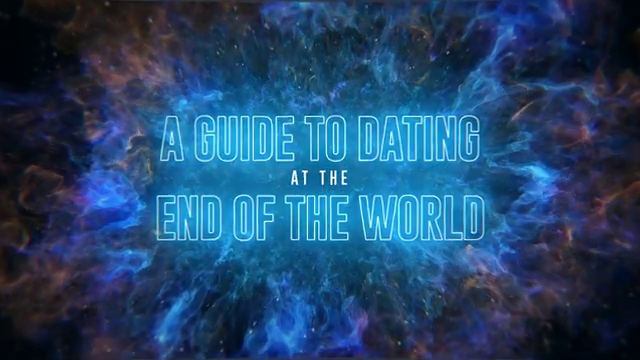
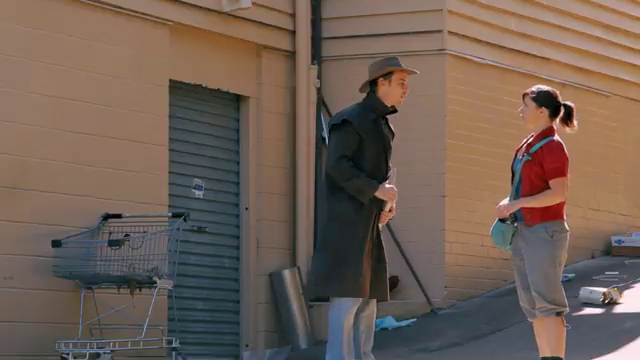
A Guide to Dating at the End of the World (2022)
Film review #660
Director: Samuel Gay
SYNOPSIS: After her friend tries once again to set her up with another guy, Alex proclaims to everyone that she would not go out with John if he were the last man on Earth. Unfortunately for her, this hypothetical actually comes true, as she awakens the next day to find that everyone has disappeared…except for John. The pair must work together to figure out what is going on, and find a way to return to their normal lives, and maybe learn something along the way…
THOUGHTS/ANALYSIS: A Guide to Dating at the End of the World is a 2022 Australian romance/comedy/sci-fi film. The film centres around Alex, a woman who is constantly being set up with men by her friends (or attempted to anyway). The latest one is John, who she claims she would not go out with him if he were the last man on Earth. As luck would have it, a side effect of the large hadron collider being switched on sends Alex out-of-sync with reality, and the only person left in the world. That is, until she runs into John, and the two must work through their differences. With a silly premise and a low budget, there’s very little in this film to take seriously. That said, there are some good points. I really liked Alex’s character and her flippant, no nonsense approach to everything. She has a certain edge to her that isn’t just a typical “unfeeling, emotionless person who eventually finds love” as you might usually see in a romance film.
John, on the other hand, never really grows into a likable character for me. He starts off being quite obnoxious and weird, and basically stays that way throughout the film, even when it is revealed he was being to stubborn is because he was reading a stupid self-help dating book that said to never take no for an answer, it still doesn’t really reflect on his character well, and still feels like an excuse. When the film tries to develop some sort of romance between them, it never really feels genuine or in keeping with their characters: Alex’s character just completely loses that edge which is integral to her, and John just seems to have the emotional range of a house brick, which leads to very little chemistry, and a very real sense that their actions are just written for the purposes of the script, without any real consideration for their characters.
The film has some nice shots of an empty Australian city, and a few Australian-centric jokes that probably won’t land if you’re not familiar with the country. There’s no point in taking anything too seriously in this film: the science is non-existent, and every idea is absurd, but overall, I think it feels a bit fresh thanks to its lead, and has some nice moments, but the film really struggles to square it’s script and idea with the characters, leading to a profound disconnect between what we see and what is intended, and a very lacklustre sense of chemistry which is pivotal in a romance comedy film.
-
#634 – Space Monkeys (2022)
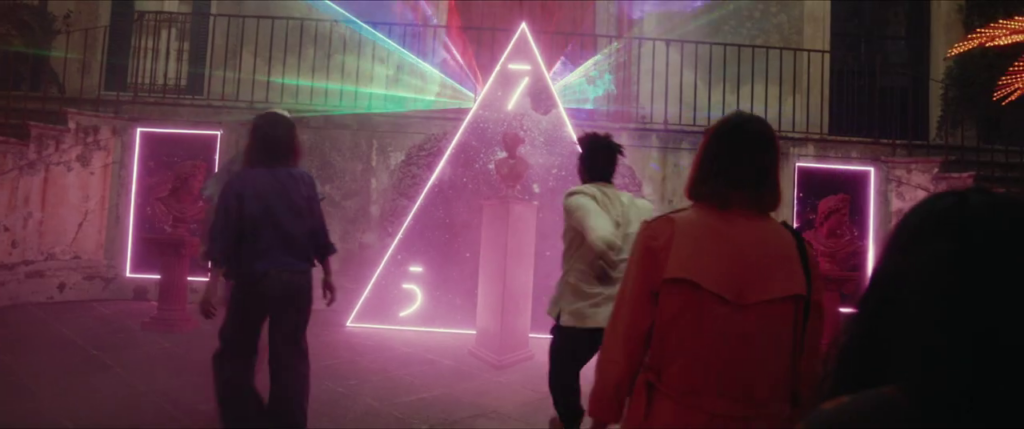
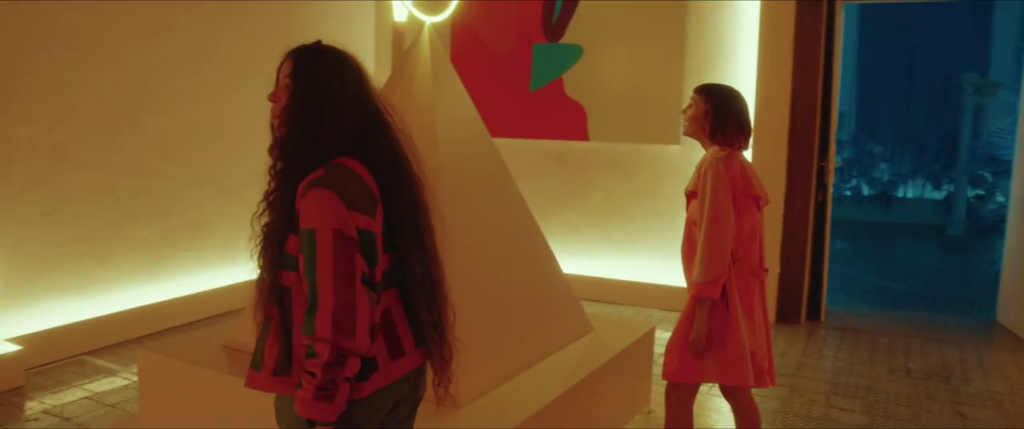
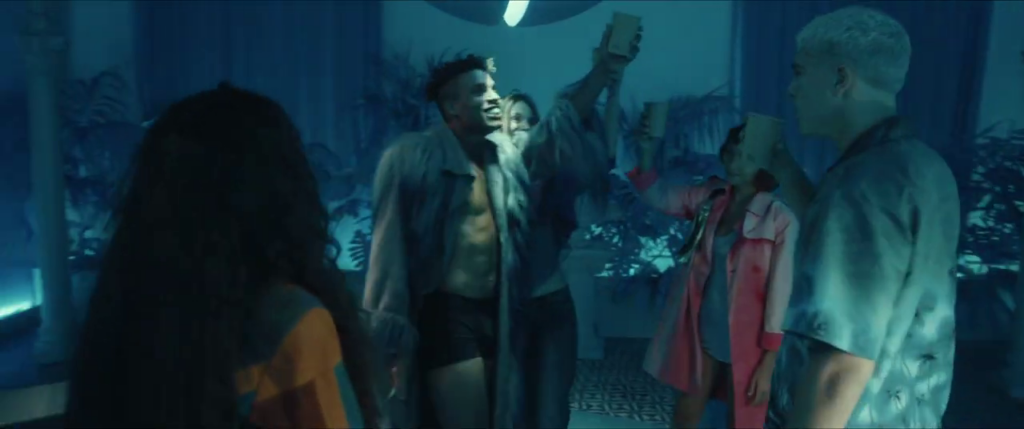
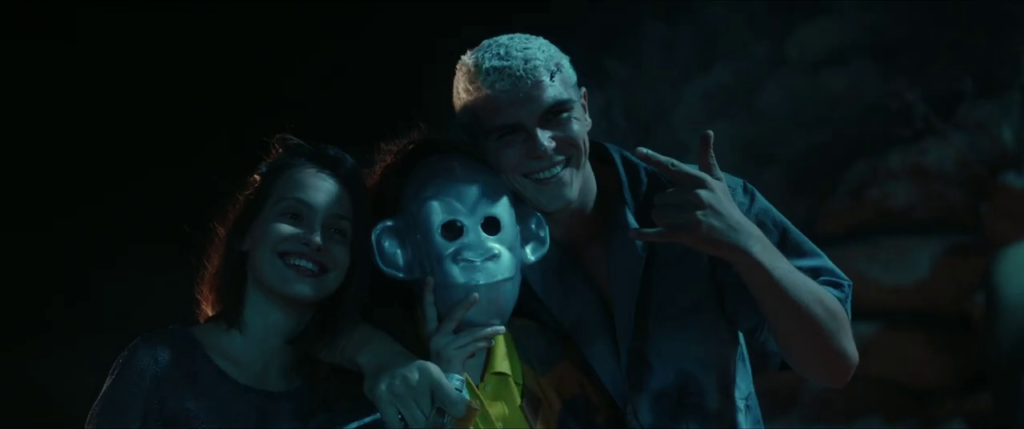
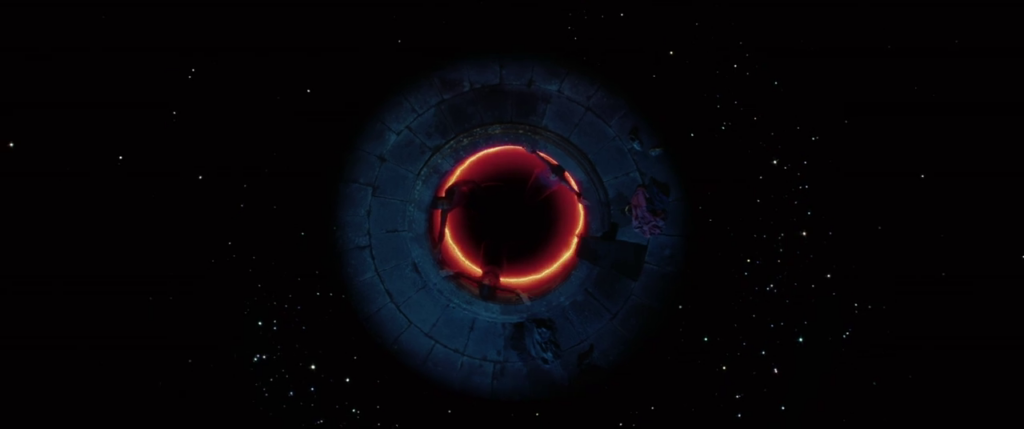
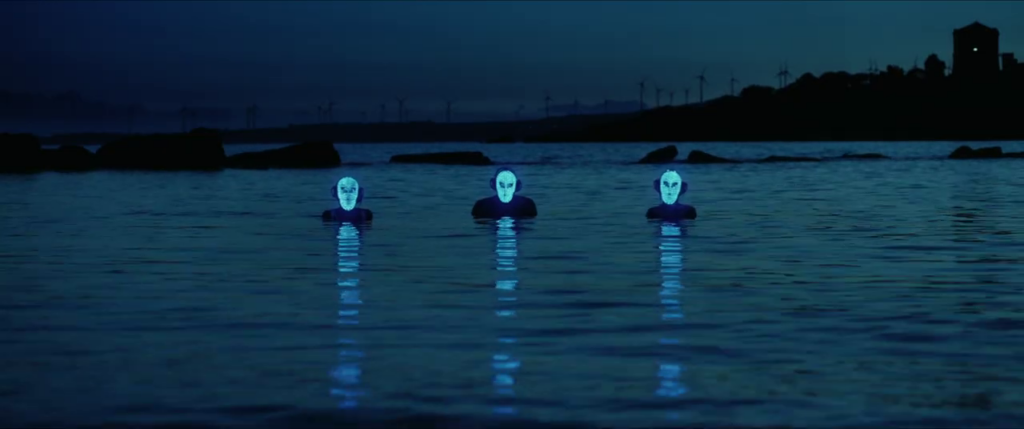
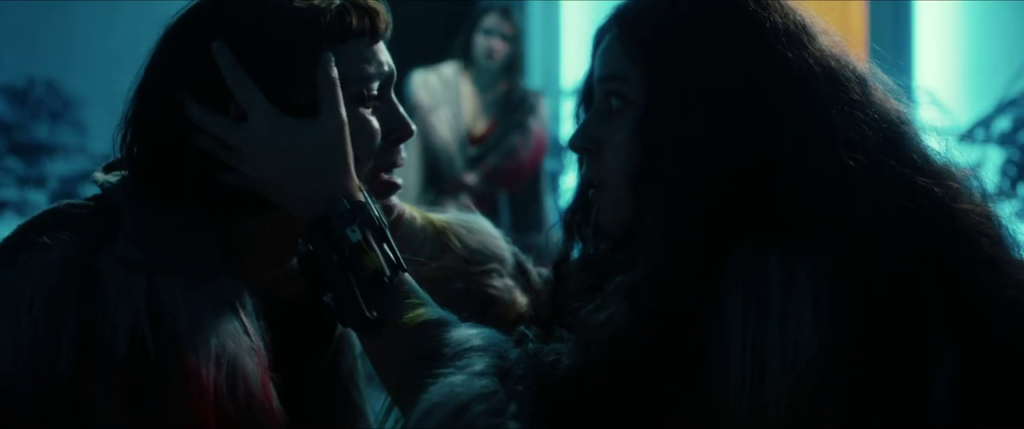
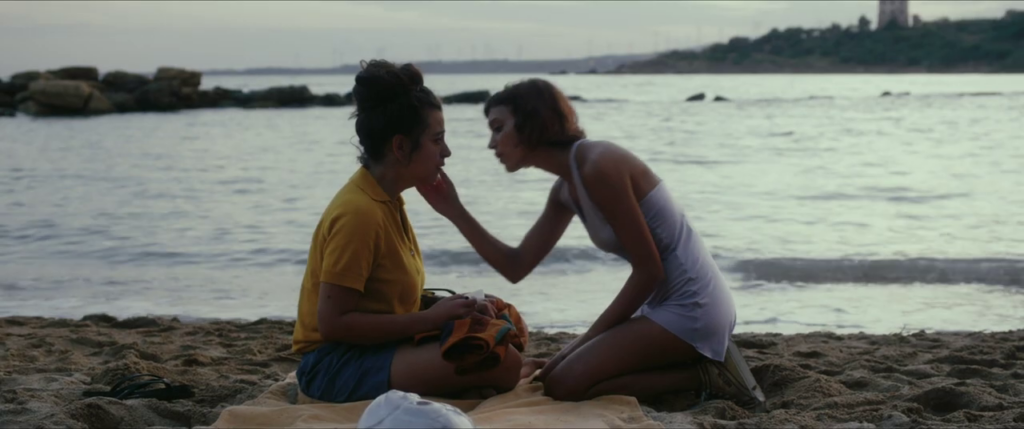
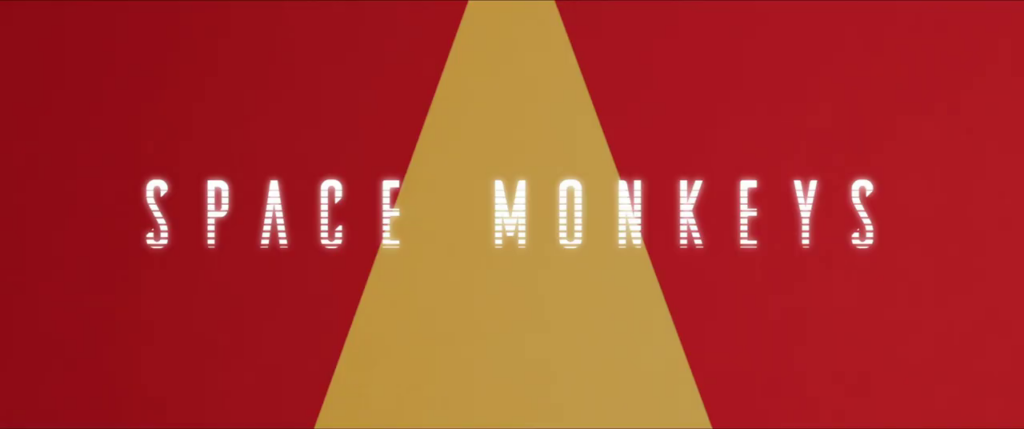
Space Monkeys (2022)
Film review #634
Director: Aldo Iuliano
SYNOPSIS: Five affluent teens are throwing an end-of-summer party. Moving on to one of the teen’s houses while his parents are away. They use the house’s A.I. to participate in increasingly extreme drinking games, but a tragic turn of events forces the youths to reflect on events and themselves…
THOUGHTS/ANALYSIS: Space Monkeys (Also known as Code Terror) is a 2022 Italian film. Centred around five affluent teens who are throwing an end-of-summer party, they visit the home of Stefan, one of the teens, who shows them around this bizarre home full of weird aesthetics and a home A.I. named Able, who controls the functions of the abode. Stefan gets Able to concoct a series of increasingly extreme drinking games, pushing the teens to their limits. The setup for this film is a bit of a horror and sci-fi one: A group of young, unlikable teens get trapped in a house with an A.I. that tries to kill them….that’s what I thought the film was about based on the trailer anyway. The only thing to say about the first half of the film is that it serves simply to make the five teens seem as unlikable as possible: they’re either obsessed with their social media, arguing with each other, or pushing each other to do stupid things. Stefan, in particular, is such an odious and annoying personality it’s difficult to tolerate his presence: seriously, he says some very nasty things. Marta is the only one who seems to have any sense of reason, but that just begs the question why she is friends with the rest of them anyway. I was waiting for the film to actually begin, but as mentioned, the first half is just constant drinking, arguing, and stupid pranks that never seems to end, and you’re left wondering what you’re doing watching this, or when something of purpose is going to happen.
At the halfway point of the film – almost down to the very second – we get the film flipped on its head and finally a sense of direction, as Stefan dies from a choking prank gone wrong. Finally, the free-loving have to confront reality, as they have to deal with what to do with Stefan’s body. The film continues to be as sporadic as the first half, with no real direction and the characters just aimlessly wandering about; which is somewhat to be expected given the circumstances and the fact that they have never dealt with anything like this before in their sheltered lives. There’s a hint of the film wanting to do a The Breakfast Club style intervention for Gen Z, but that just doesn’t work because we don’t know any of the characters, and they don’t really confront themselves or their relationship with any of the others: one of the characters just wanders off and doesn’t come back until near the end. With The Breakfast Club, the characters were forced to confront themselves through each other, interacting with people they wouldn’t normally, and learning about themselves and others. In Space Monkeys, there’s a distinct absence of any of that. The only character that seems to deal with the situation is Marta, but we still don’t get much of an insight into her character to really get involved with the dilemma she or any of the others are facing. The film’s setup with the whole A.I. trying to kill them and whatnot just…evaporates into nowhere as well, and we’re left wondering just what the point of it was. I don’t know if I was supposed to feel bad that Stefan was dead by the end, but I really wasn’t: he was absolutely insufferable.
There’s obviously some intention behind the way the film is structured: the way the film flips at exactly the halfway point is meant to shock these carefree youths with reality, and there’s a number of scenes where the camera is purposefully placed at a specific angle to frame things, but again, there’s no real substance to anything, nothing to interpret, and no maturity in any of the characters. The film ends abruptly with the four abandoning their plan to say that Stefan died on his own without them being there, and just calling the police to tell them the truth, which I suppose is meant to show them taking responsibility; something which wasn’t earned in their aimless wandering through the film, and it just makes the whole thing just seem like a waste of time. Any attempt at redemption of these characters fails because the film goes so far and hard in the first half to make them unlikeable. By the time the film tries to turn it around, it’s too late to dig itself out of the hole it has made for itself. A glint of intention behind a directionless mess, Space Monkeys fails to get to grips with it’s characters, and any attempts at redemption and confronting reality through the events that transpire are far too inadequate due to the sizeable hole the film digs itself into by making the characters as obnoxious and unremarkable as possible.
-
#592 – Press Play (2022)
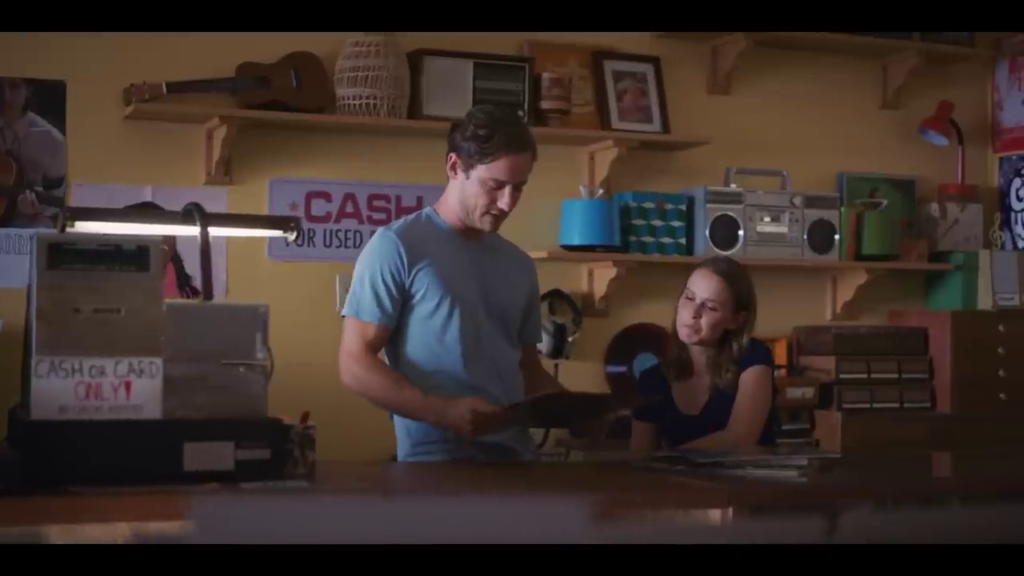
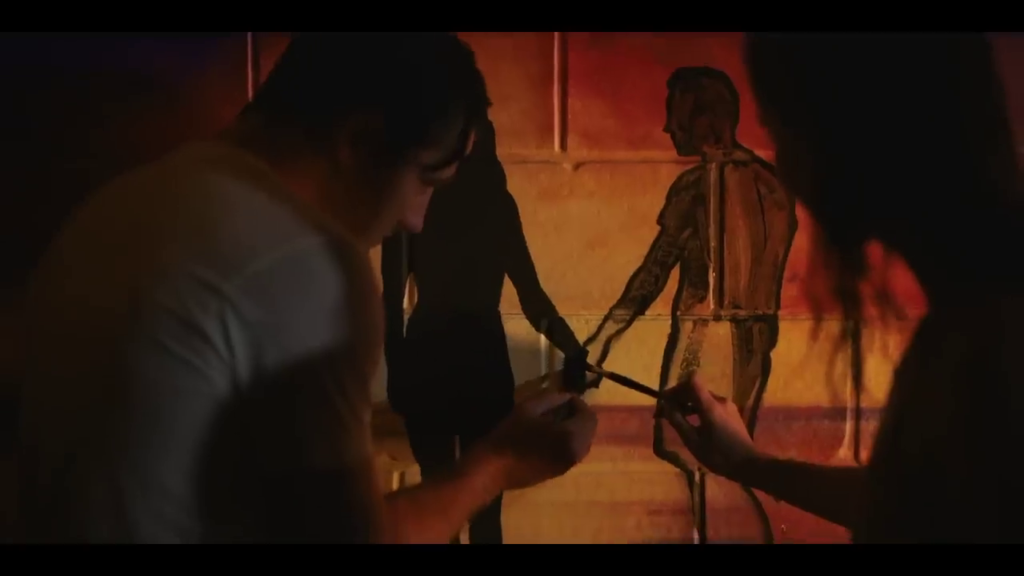
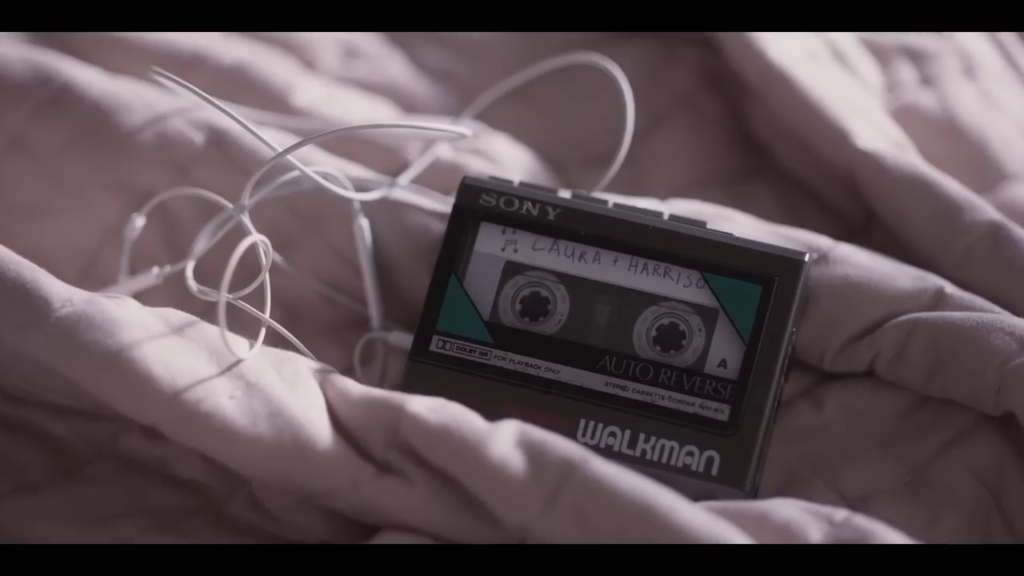
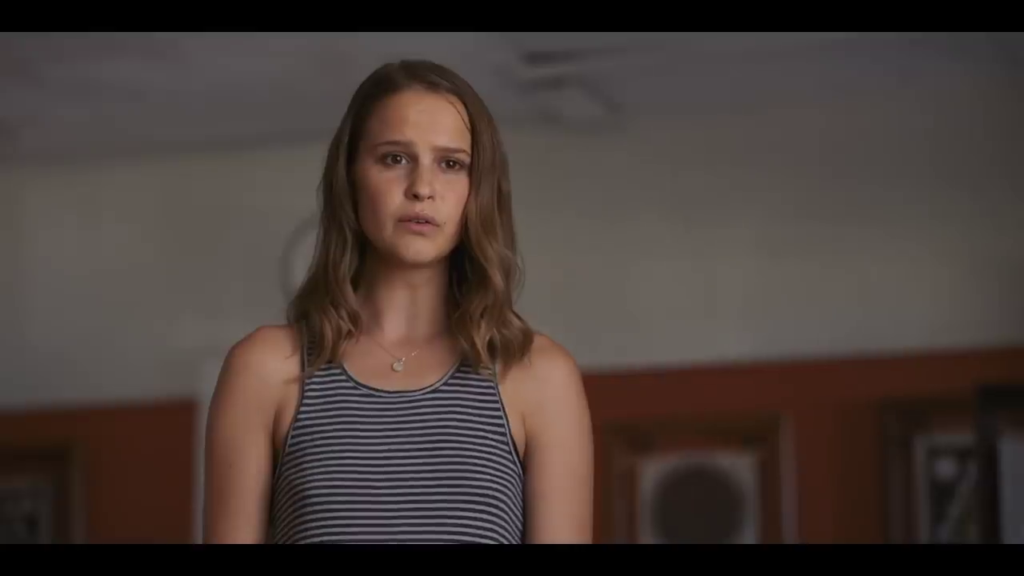
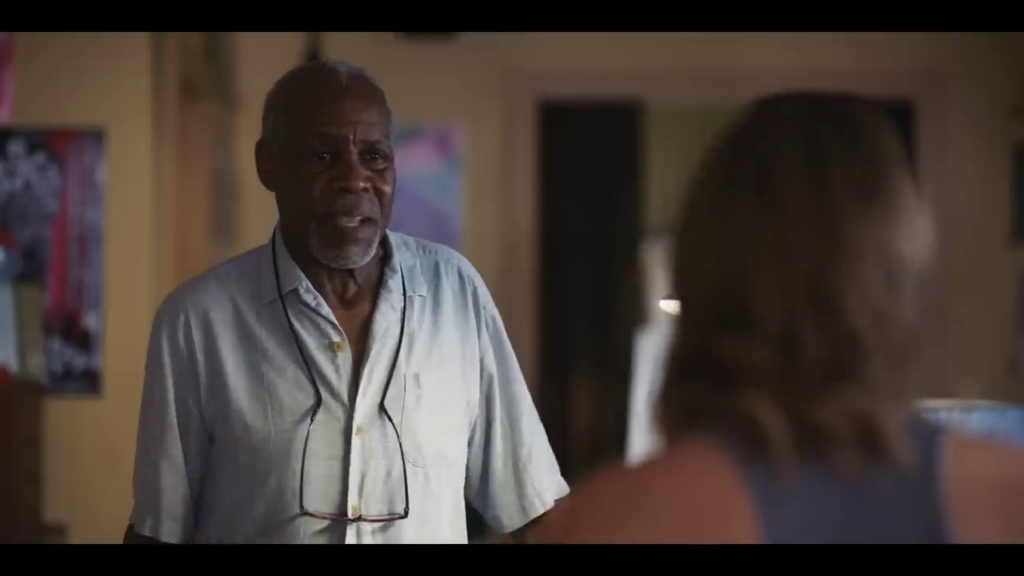
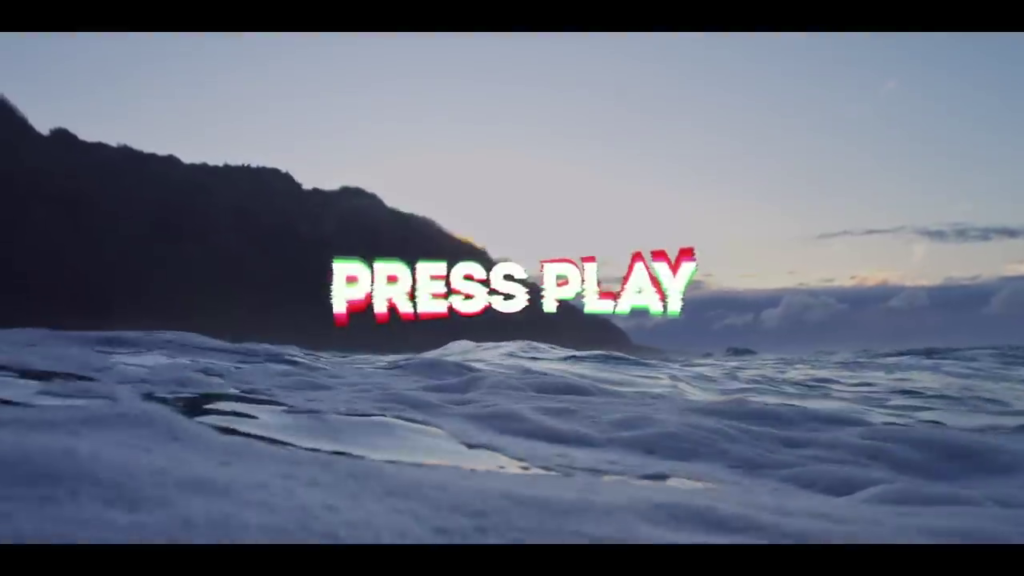
Press Play (2022)
Film review #592
Director: Greg Björkman
SYNOPSIS: After her partner dies in an accident, Laura learns that the mixtape they made together can transport her back in time, giving her a chance to save him. But things quickly become more complicated than they first seem…
THOUGHTS/ANALYSIS: Press Play is a 2022 sci-fi romance film. Laura is set up with her friend’s brother Harrison, from which a romance blossoms. Things come to a tragic end when Harrison dies in an accident, but Laura (some four years later) finds that the mixtape they made together can transport her back to specific points of time relevant to each song on the tape. She uses this chance to go back and try to save his life, but every time she intervenes it creates another problem. We see the from the start how the two meet and their relationship develop, but the main issue of the film quickly emerges from this: One, we are only shown the key events in their relationship one after another, squeezed into the first twenty minutes, which just feels like you’re moving from one moment in time to another without any real connection, and no time or space or a relationship or onscreen chemistry to develop organically. As such, there’s a lack of investment in the relationship and characters, and everything is a little fragmented. I get that it is partly this way because it has to reflect the mixtape of having songs that are part of important parts of their relationship, but without something to bring them together, it just flat out doesn’t work. The concept of the time travelling mixtape is interesting, but very much underutilised and underexplored. There’s a part where Laura decides to read up on the theory of time travel (as you do), but nothing really comes of it, and it doesn’t add anything to the plot. Keeping the mechanics of time travel relatively light might be so as to not alienate the viewers are there for the romance genre, as nothing is as offputting as being overwhelmed by technical jargon. As mentioned though, the romance element is severely underdeveloped as well. The acting isn’t the problem on the whole, and Clara Rugaard as Laura does a good job. Lewis Pullman as Harrison really doesn’t convince with the more emotional moments though, and always feels like he is just acting. Whether it is him, or the direction he is given, he just doesn’t portray quite the right emotion.
For a film that relies quite a lot on music, the soundtrack on the whole is fairly bland and forgettable. They never really discuss (apart from the first song) who the band playing are, or what the song really means; it just happens to be playing by coincidence at certain times. It is perhaps inescapable to compare to a film like Hi Fidelity, which also had the concept of music and relationships at its core, but that film allowed the viewer to build up a picture of the main character based on his music interests, using familiar songs. In Press Play, we have artists and songs you’ve probably never heard, and which sound all a bit too familiar. The lyrics of the songs almost always just verbalise what is happening in the film at that moment, leaving little room for interpretation, and it all just feels a bit on the nose. Also, I can’t help but notice a few elements borrowed from the Life is Strange video game, including the time travel, the indie soundtrack, and even the credits using a very similar font and animation. I’m not the only person that sees this apparently either. I don’t think Press Play is meant to be an emotionally heavy film, but it really does keep everything light in all regards: the onscreen chemistry between the actors is not there, the relationship lacks depth, there’s no real humour to break things up, and the science-fiction element isn’t grappled with to give the film a novel twist.
-
#582 – Everything, Everywhere, all at Once
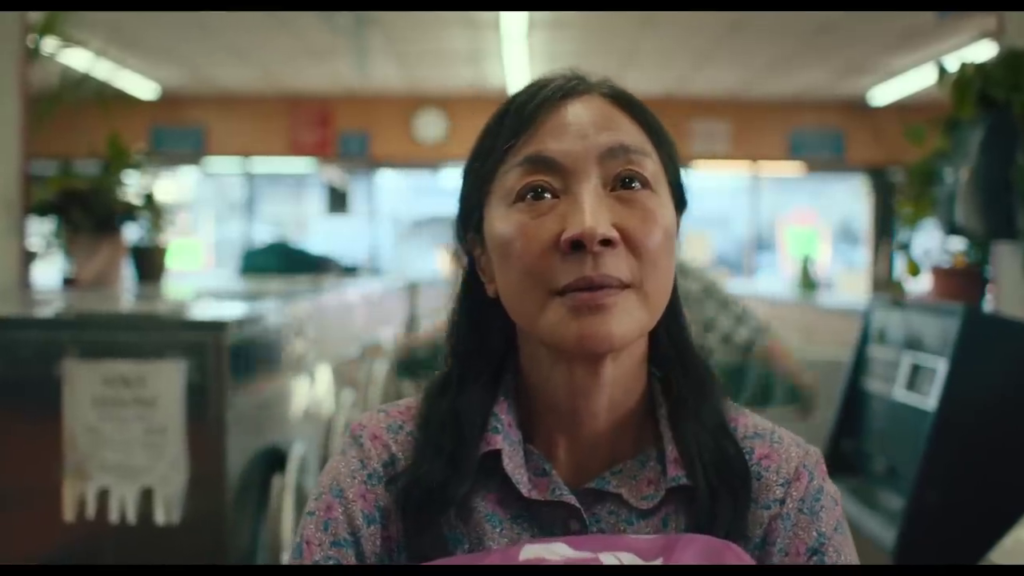
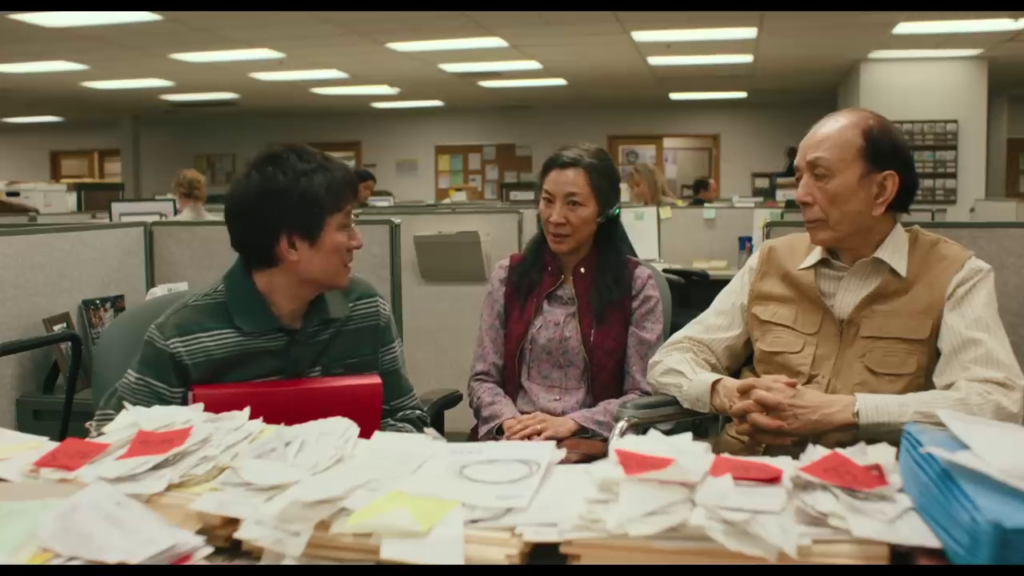
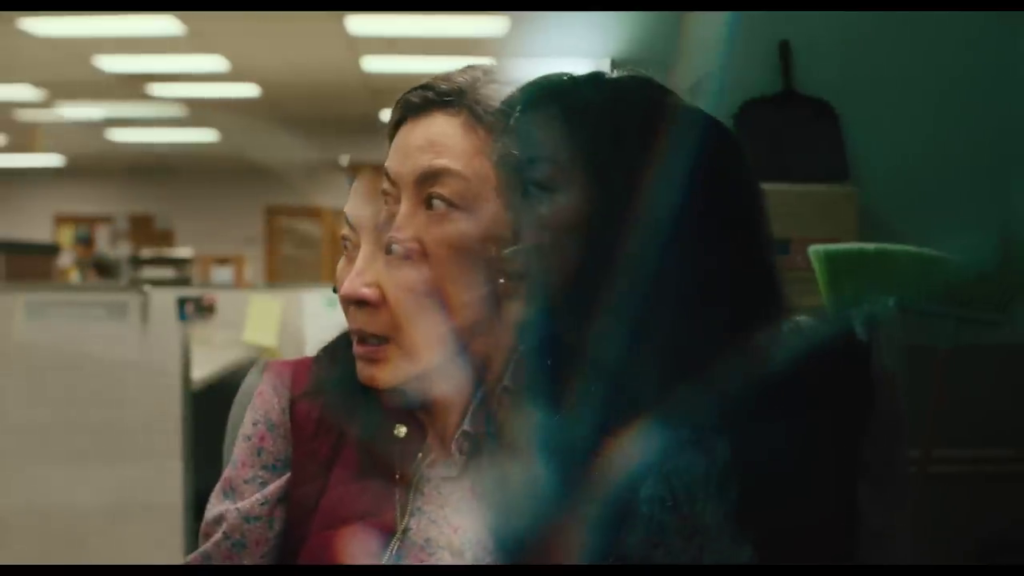
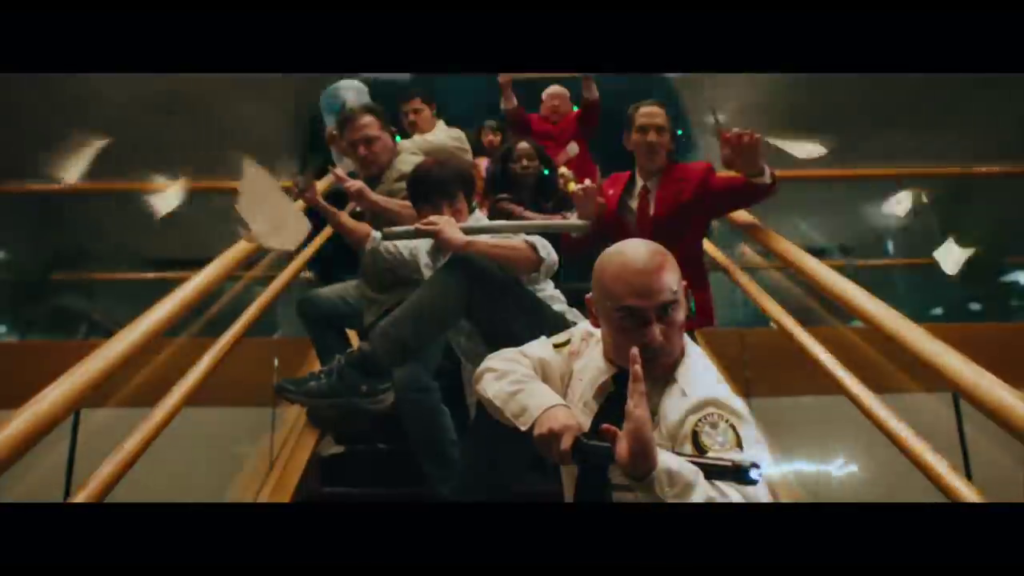
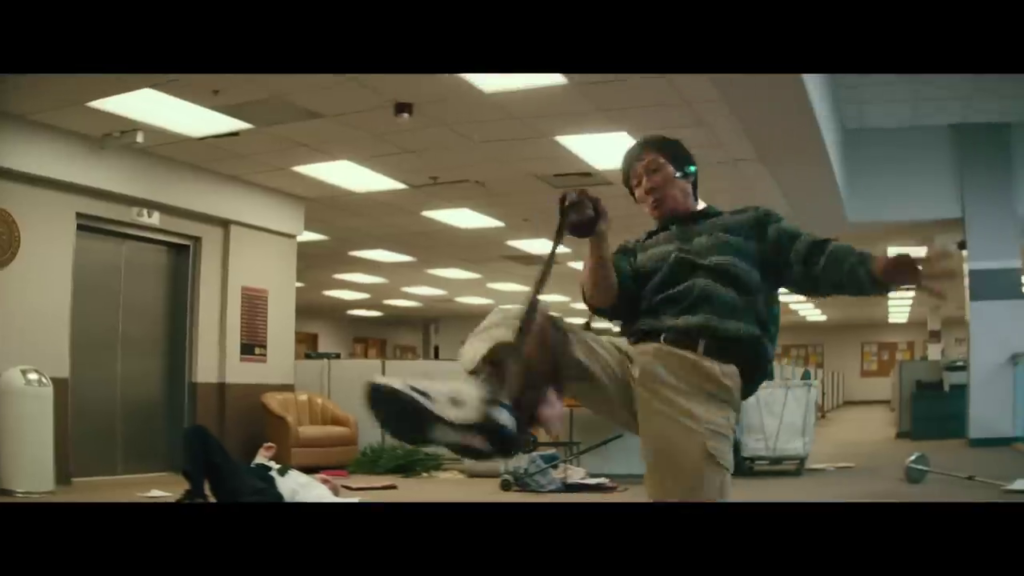
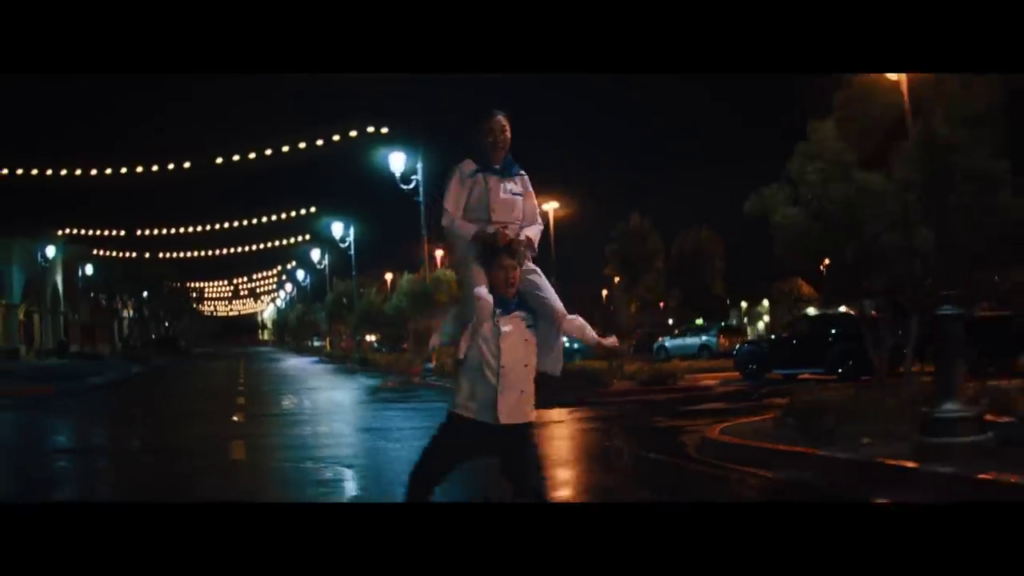
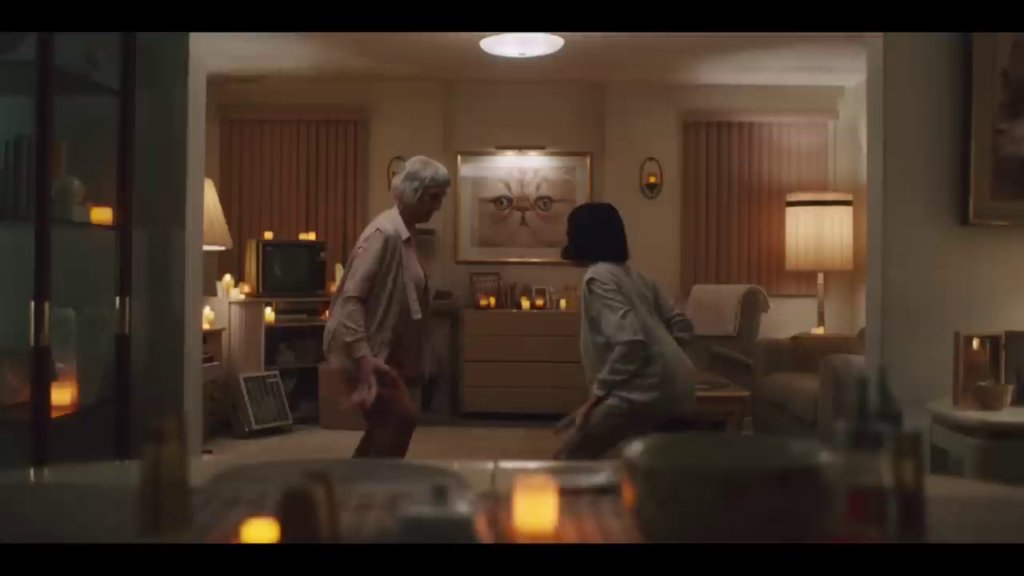
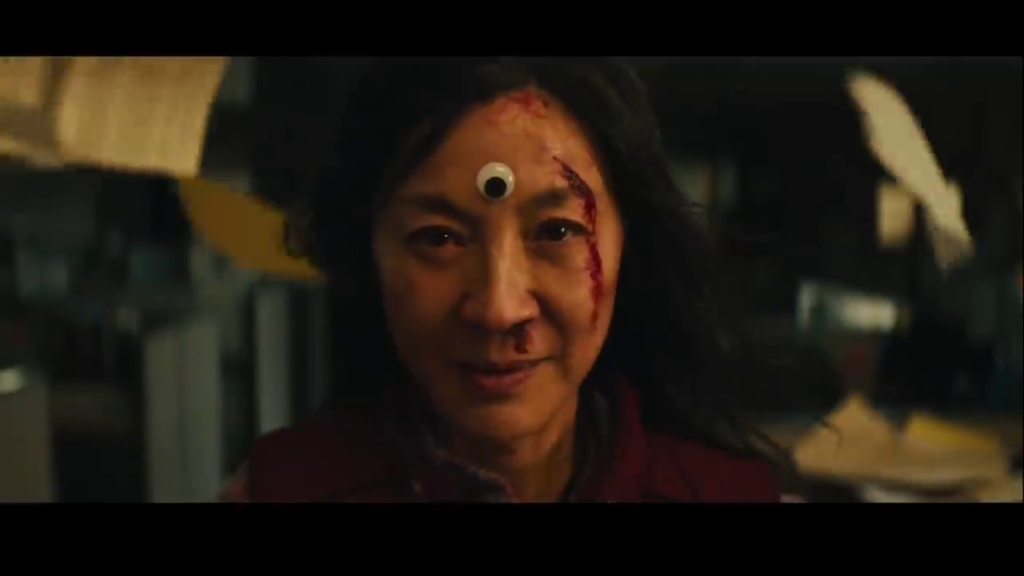
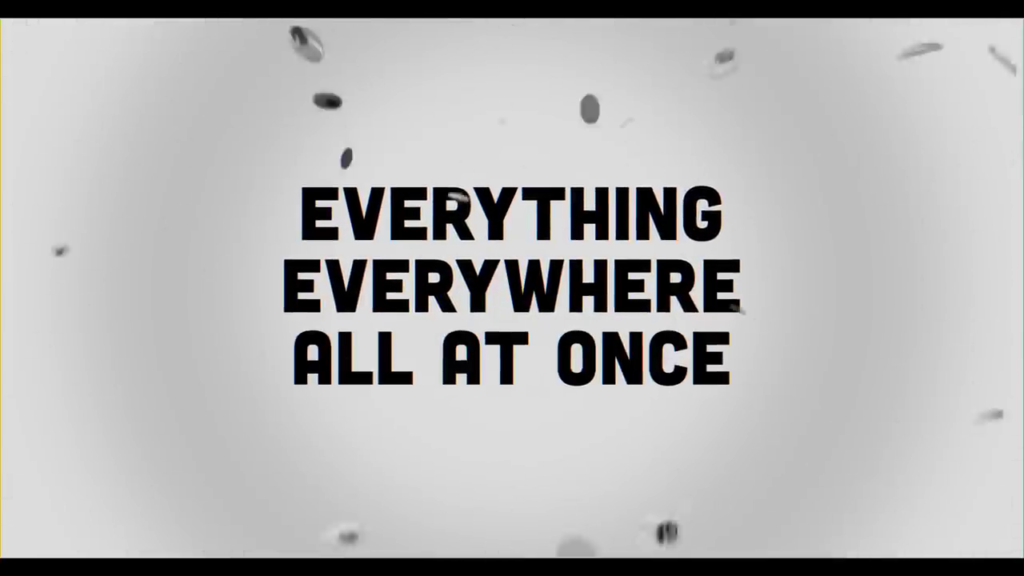
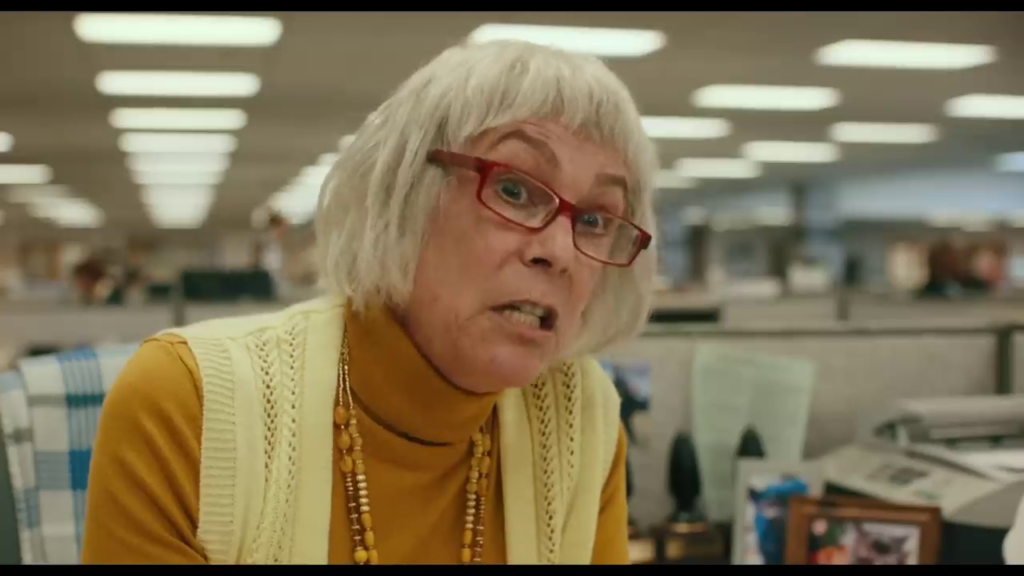
Everything, Everywhere, All at Once (2022)
Film review #582
Director: Daniel Kwan, Daniel Scheinert
SYNOPSIS: Evelyn is an overworked laundromat owner who is preparing for her Father’s visit, an audit by the IRS, among everything else. She is suddenly forced into a battle across the multiverse to save every reality from being destroyed by a nihilistic entity who just so happens to be her daughter…
THOUGHTS/ANALYSIS: Everything, Everywhere, All at Once is a 2002 sci-fi film. The film centres around Evelyn, a laundromat owner who is being audited by the IRS, amongst a host of family issues as well. Evelyn is suddenly pulled into a battle to save the multiverse, and must tap into the possibilities of the different versions of herself to stop an evil entity from destroying everything. Operating on a number of different levels and perspectives, the film is inherently chaotic, and it is designed to be, but has specific themes and relationships that ground the film and provide an entryway into the story. Perhaps a few of these can be boiled down into very typical relationships and problems, but maybe that’s what makes them relatable and meaningful; I think your mileage may vary. Nevertheless, the film has a quick pace and packs a lot into it’s two and half hour runtime. Being a film about the infinite possibilities of existence and jumping between different realities, it would be quite easily to leave a viewer confused, or have the film get bogged down in technical jargon and exposition: fortunately, the film manages to keep its pacing and energy while setting itself up for the viewer, and switching around the different realities and revealing things in a piecemeal fashion help keep the film going.
In terms of characters, Evelyn as a role was made for Michelle Yeoh: it showcases her acting talent across all the different genres and roles she has done over the years. she takes on all the different roles she has to play effortlessly, while also retaining the everyday core of her character that is just trying to manage a business and her family. The rest of the cast too are solid in their roles that are uniquely carved out for them, and are a bit of stability in contrast to Evelyn’s constant flux.
Credit should be given to the writing of the film that balances the right amount of entertainment, drama, action, and emotional moments that are switched between to avoid the film becoming too bogged down in any particular details. The film makes it simple enough to go along for the ride, but also provides some powerful emotional moments that hit when you least expect. The film does wobble a bit near the end, where I don’t think it sets up the climax of the film as such, because the film has had so much energy and motion that you don’t realise that this is where everything is coming to a head, and not just another step somewhere else. The philosophical clash between a humanist existentialism and a nihilistic meaninglessness has some weight to it at the end, but it’s not something explored throughout the film so it feels like you’re getting a pay off from everything you experienced. Part of that is intentional: that out of all the different possibilities and realities, what matters is the seemingly drab one that you inhabit, and because everything is valid (in other universes), then no single one is more meaningful than the other. As mentioned, some of the themes and characters are boiled down to rather simple positions or outlooks by the film’s end, but these are all minor gripes about a film that does so well with so many things, and turns in solid performances from the cast, as well as navigating a host of different themes: keeping things interesting for casual movie-goers, while also not being afraid to delve deeper into heavier subjects when necessary. Overall, Everything, Everywhere, All at Once is a high energy mix of films that nevertheless relies on a careful arrangement of it’s parts so it doesn’t fall into a giant mess. Being able to sustain interest and attention across the runtime thanks to solid performances, fun action scenes, and emotional moments that pull you back in. A few missed beats around pacing and oversimplifying certain positions don’t upset the overall impact of a film that both opens itself to the infinite possibilities of existence, while still making the here and now matter.
-
#575 – R.I.P.D. 2: Rise of the Damned (2022)
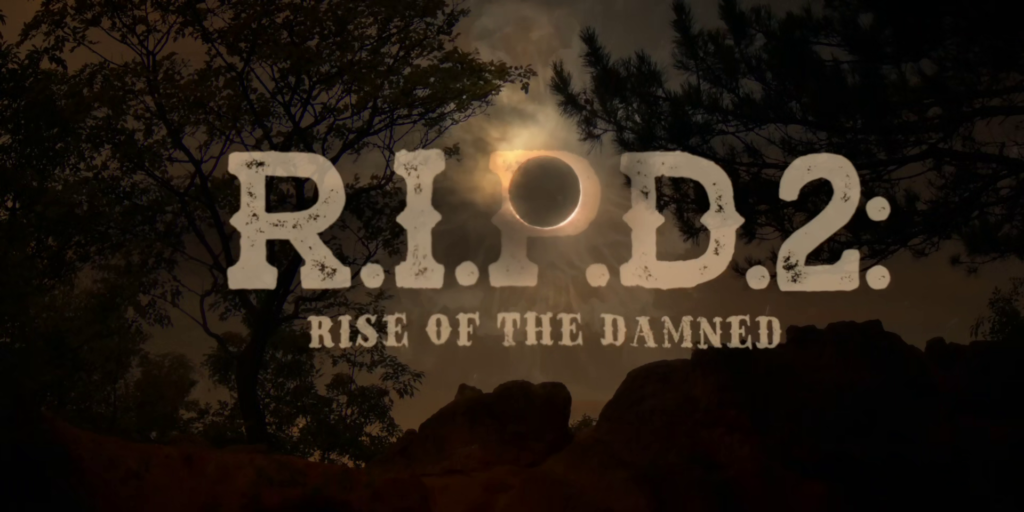
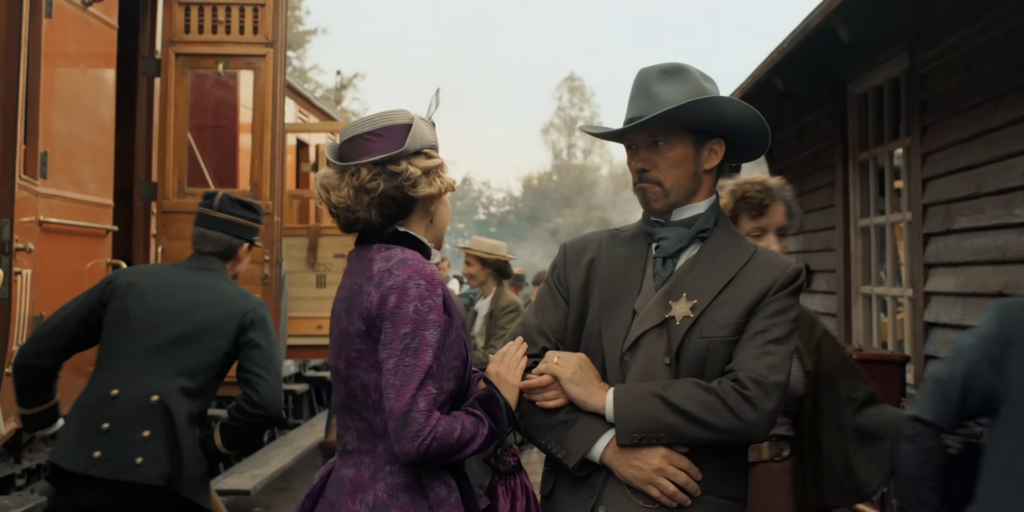
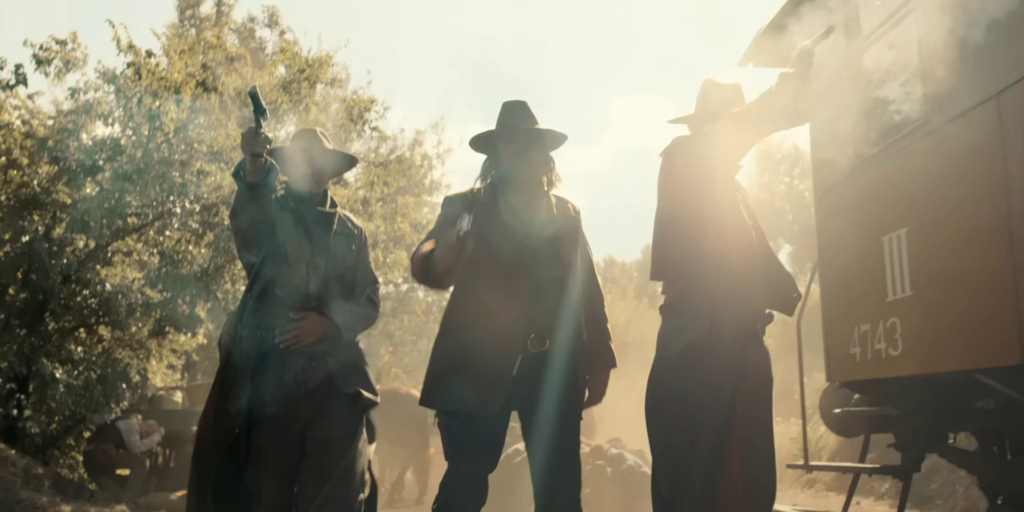
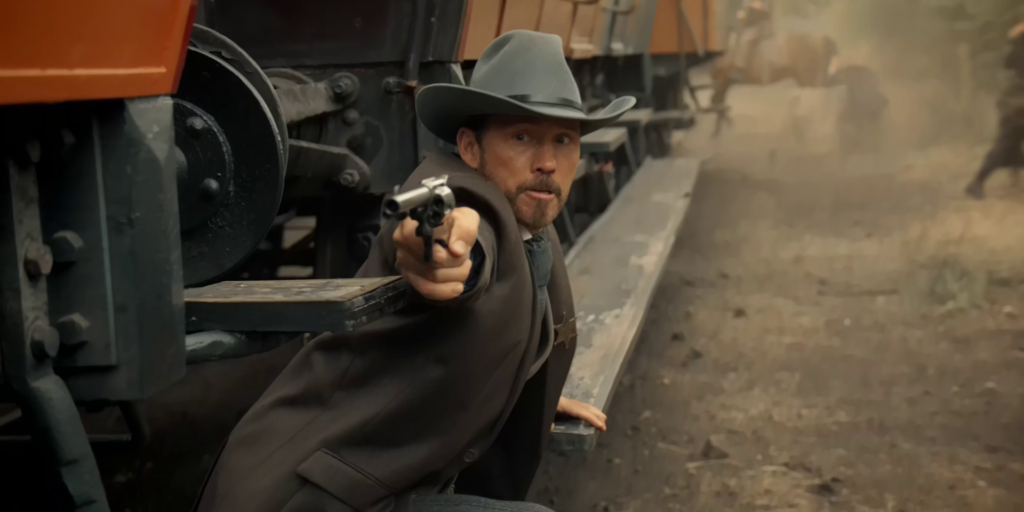
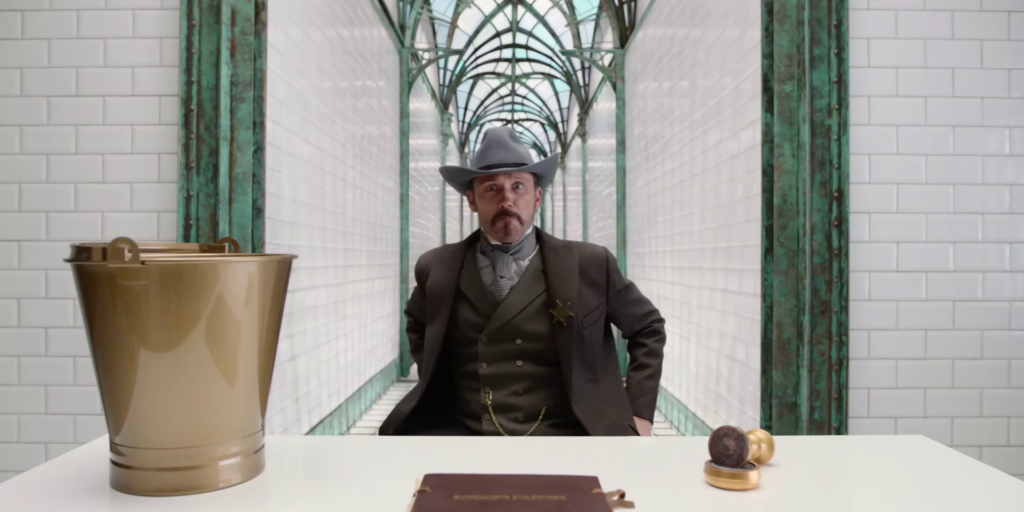
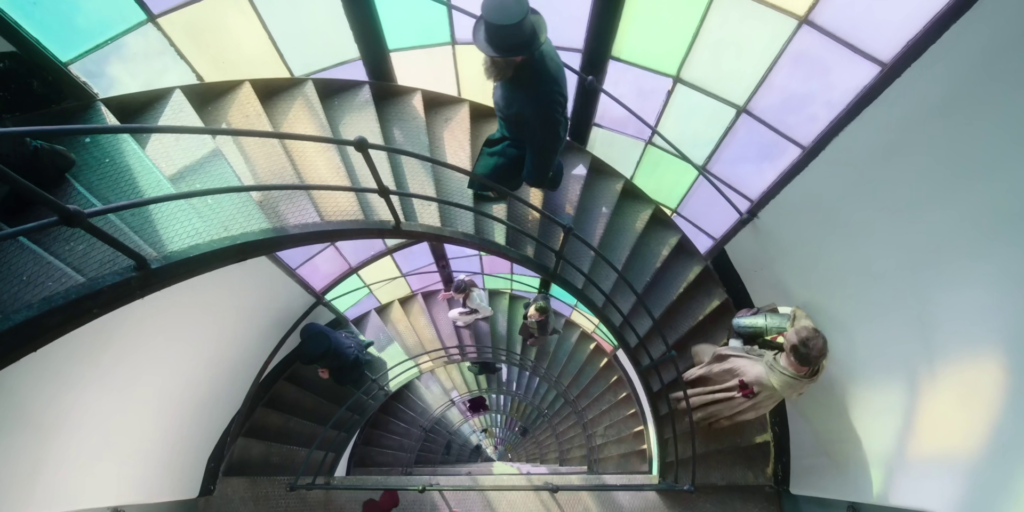
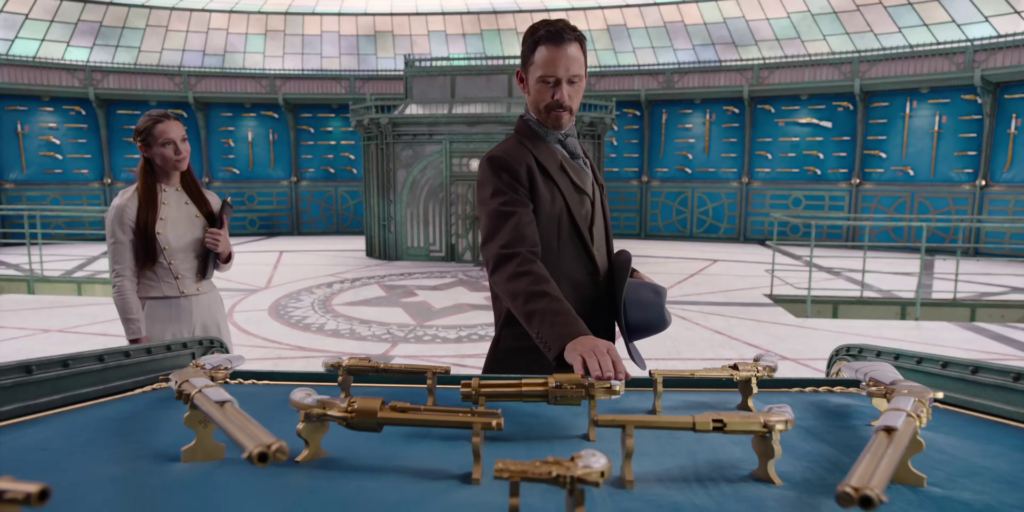
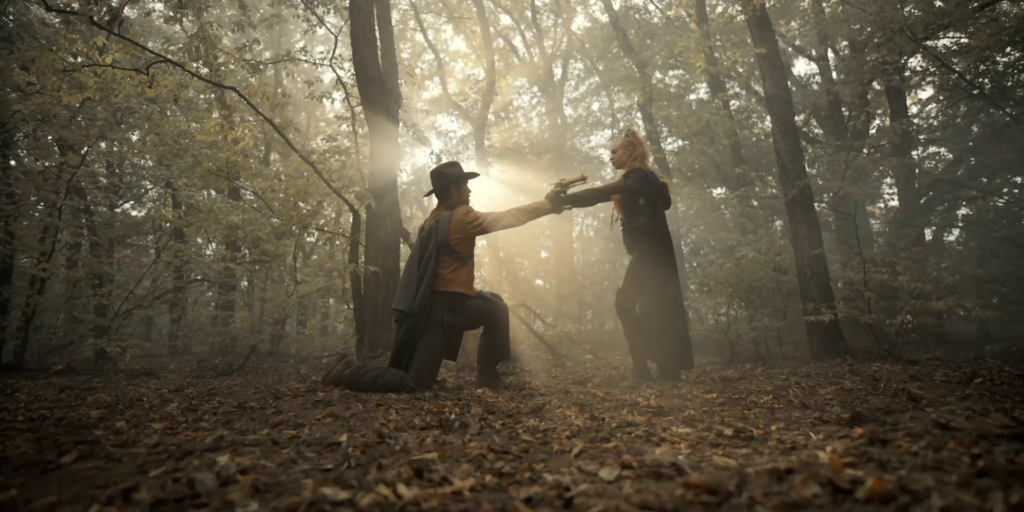
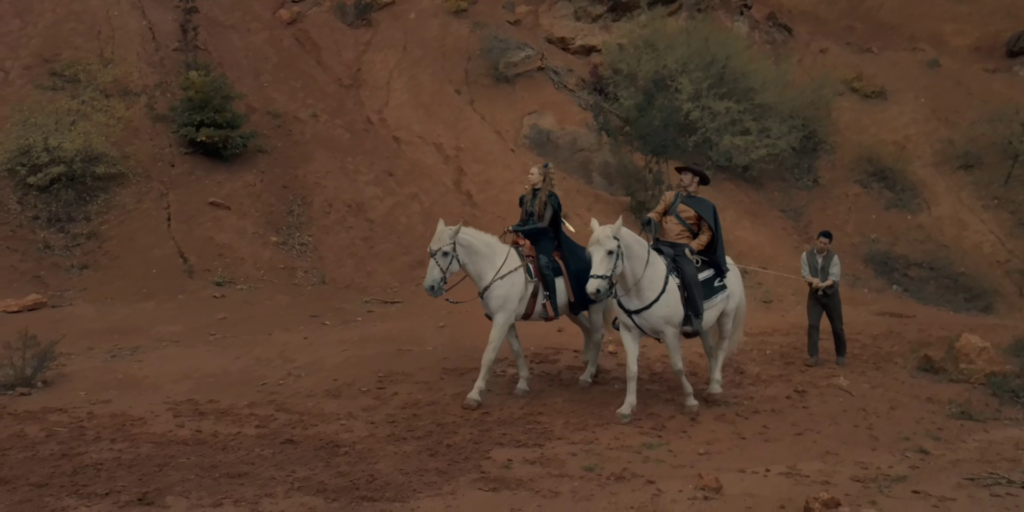
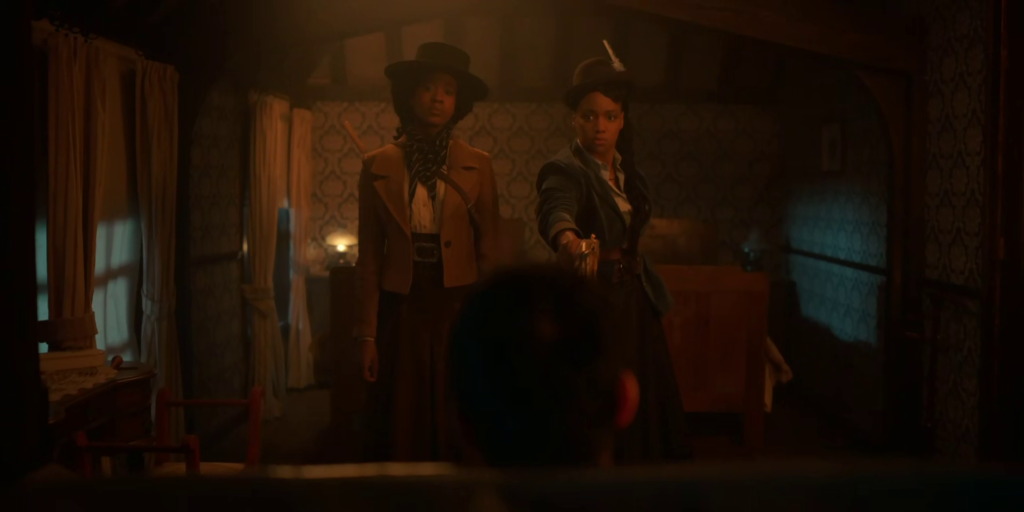
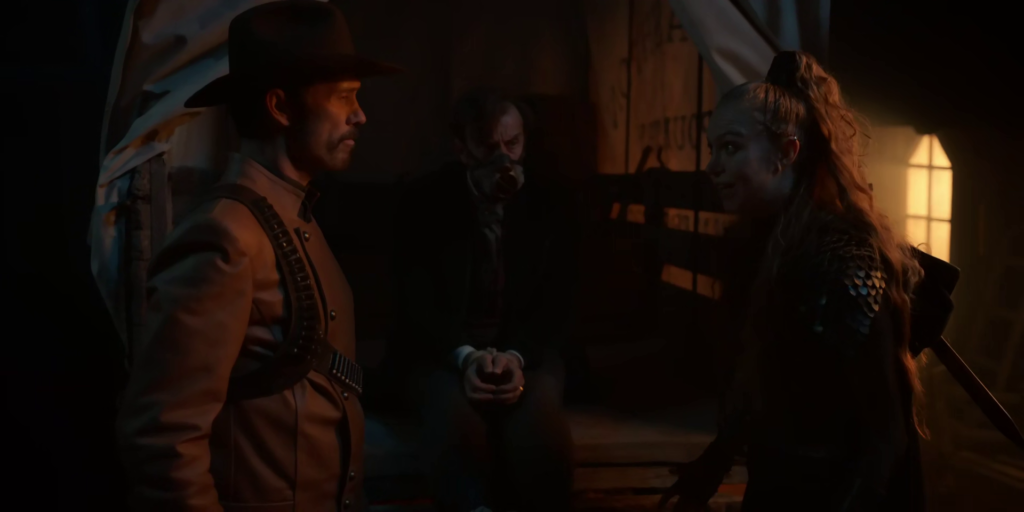
R.I.P.D. 2: Rise of the Damned (2022)
Film review #575
Director: Paul Leyden
SYNOPSIS: Sherriff in the Old West Roeciphus Pulsipher is gunned down and killed in a shootout with some outlaws. Before he can proceed to the after life, he is recruited by the Rest in Peace Department (R.I.P.D.) to hunt down souls that have not departed from the Earth. “Roy” is partnered with veteran officer Jeanne to investigate a disturbance that could put the whole of humanity at risk…
THOUGHTS/ANALYSIS: R.I.P.D. 2: Rise of the Damned is a 2022 film. Despite what the name implies, the film is not a sequel, but a prequel to the 2013 film R.I.P.D., in which we see the story of how veteran officer Roeciphus “Roy” Pulsipher joined the department. The film is set in the Old West, where Roy is killed in a shootout with a local outlaw gang. He is recruited by the Rest in Police Department (R.I.P.D.) to deal with souls called “Deados” who have remained on Earth after death and must be sent to the afterlife. Roy is teamed up with another officer, Jeanne, to investigate an increase in strange activity. If you watched the first film, you’ll know exactly what to expect from this film, because it is basically the same plot: rookie and veteran partner up to stop the souls of the dead from returning to Earth. However, unlike the first film, which was still entertaining by just rushing through the film and relying on constant action and strong character performances, R.I.P.D. 2 doesn’t even have that, and the film stumbles along without any real energy or appeal. It doesn’t expand on the world or the lore in any way, it doesn’t reveal anything new about the characters, it’s just a completely recycled product with all the good stuff thrown out.
The only returning character from the first film is Roy, who was played by Jeff Bridges in the original, is played here by Jeffrey Donovan (obviously Bridges would have been a bit too pricey for this low-budget prequel). While I see a lot of praise for Donovan’s performance, I just didn’t see it. In his defence, it might just be the awful script and writing that is giving him stunted dialogue and interactions, which is certainly feasible, as the characters interact rather clumsily. Jeanne ‘s characters is very much a typical “veteran cop,” and the French accent gives it away that she is meant to be Joan of Arc fairly early, although the film “reveals” it a lot later (although I’m not sure if it is meant to be obvious, because the writing doesn’t indicate it). Despite her being a famous historical figure, it doesn’t fails to add anything to the film or her character. Following the lore of the film, Roy and Joan look completely different to living people so they can’t be recognised, and are given the appearance of two black women. This does present an opportunity for the film to address the racism and status of black people in the Old West, but the film chooses to play it safe and does the bare minimum with it. If they’re not going to address the topic, they might as well just not bothered having it as a plot point at all.
Every establishing shot in the film gives away that everything is a set devoid of substance beyond the camera. The effects are plain, and nothing stands out to make things interesting. The ending wraps things up in a roundabout way and addresses issues that I didn’t realise were an issue (who actually shot Roy or something). Overall, you’re not going to get anything out of this film that the original, and is far inferior in every way. Everything about the film feels cheap and uninspired, and the things that made the original entertaining are absent. Releasing ten years after the original as well means that the opportunity to ride the hype of its predecessor is long gone, leaving it alone and essentially dead on arrival.
-
#573 – Moonfall (2022)
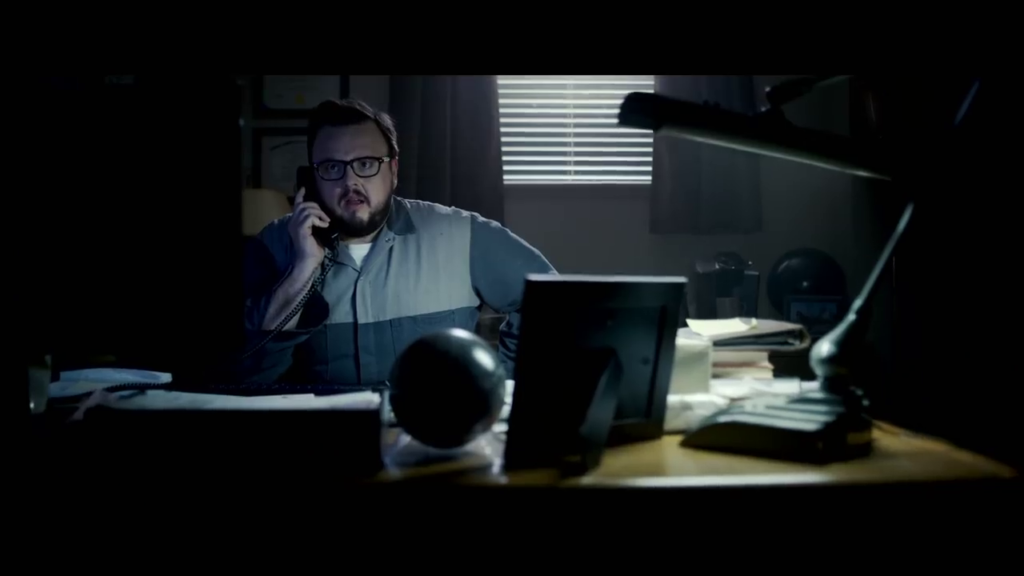
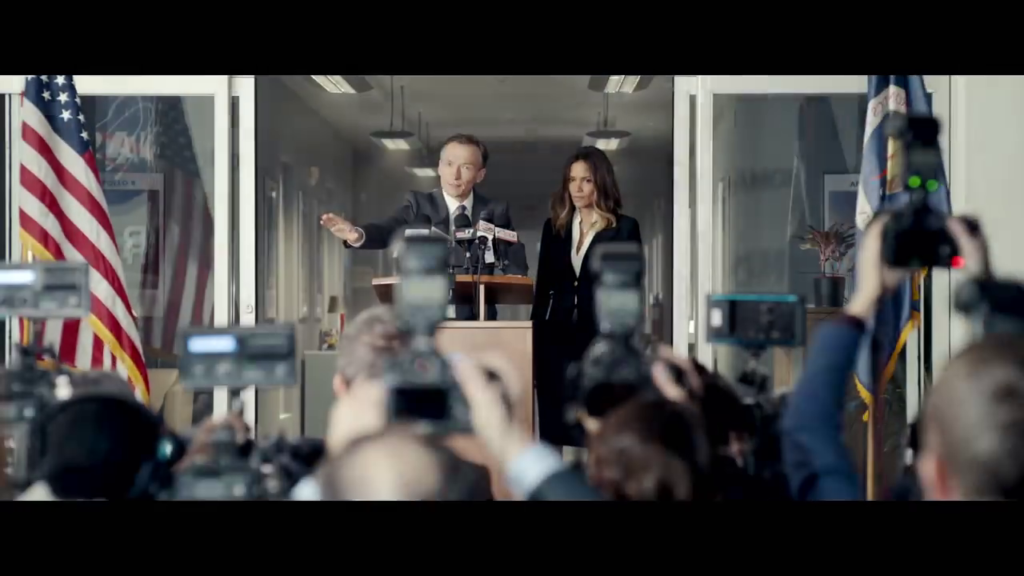
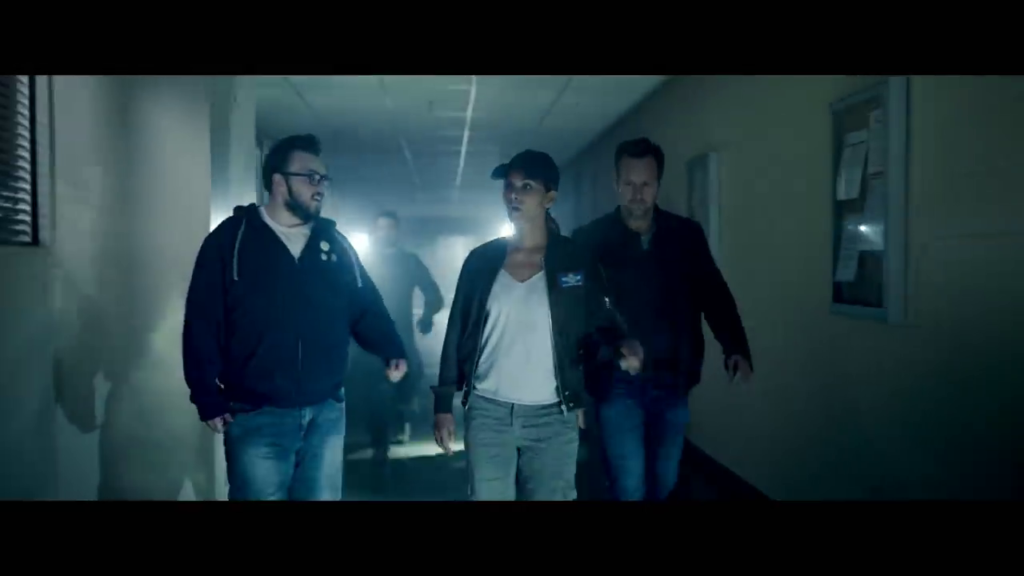
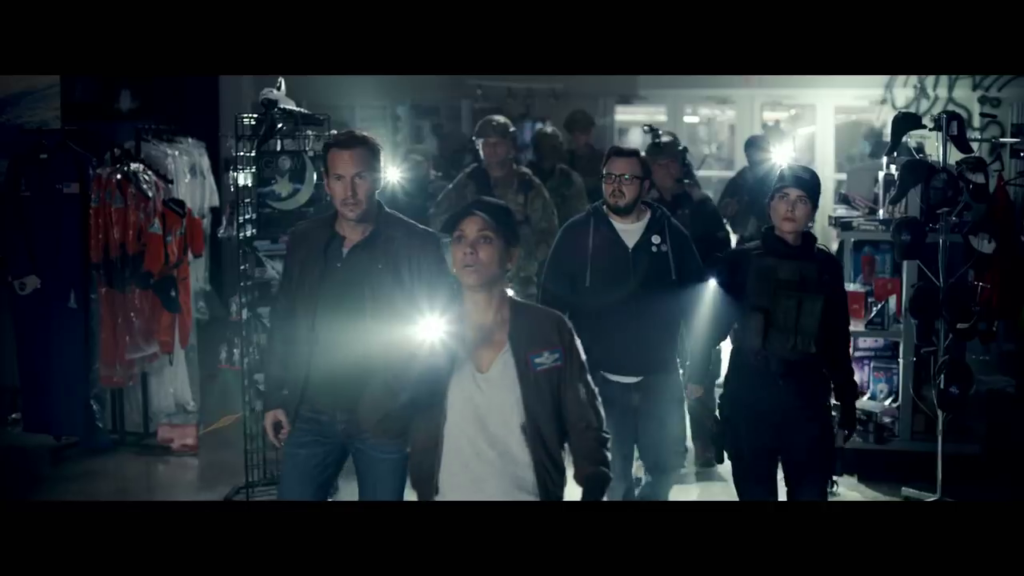
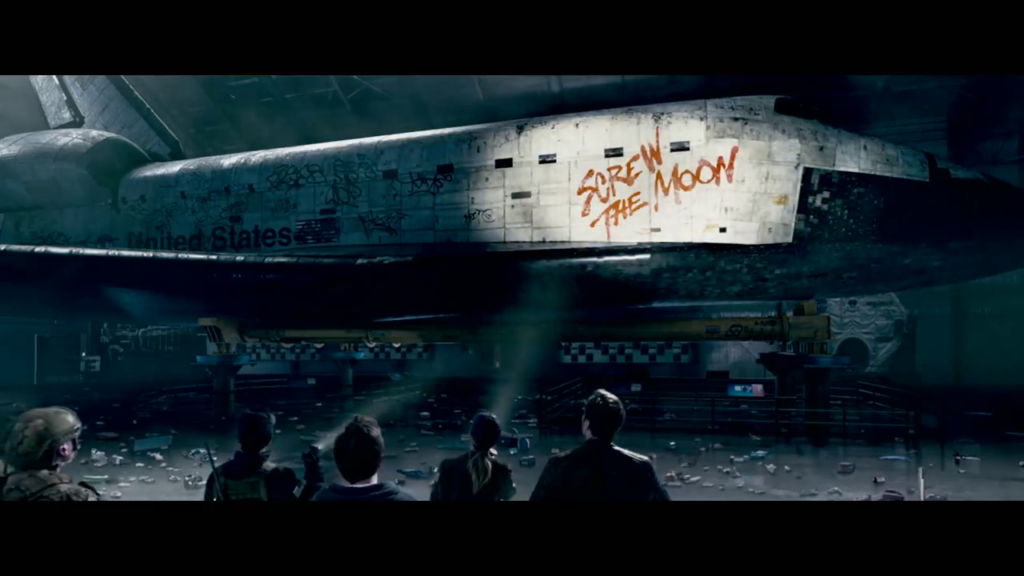
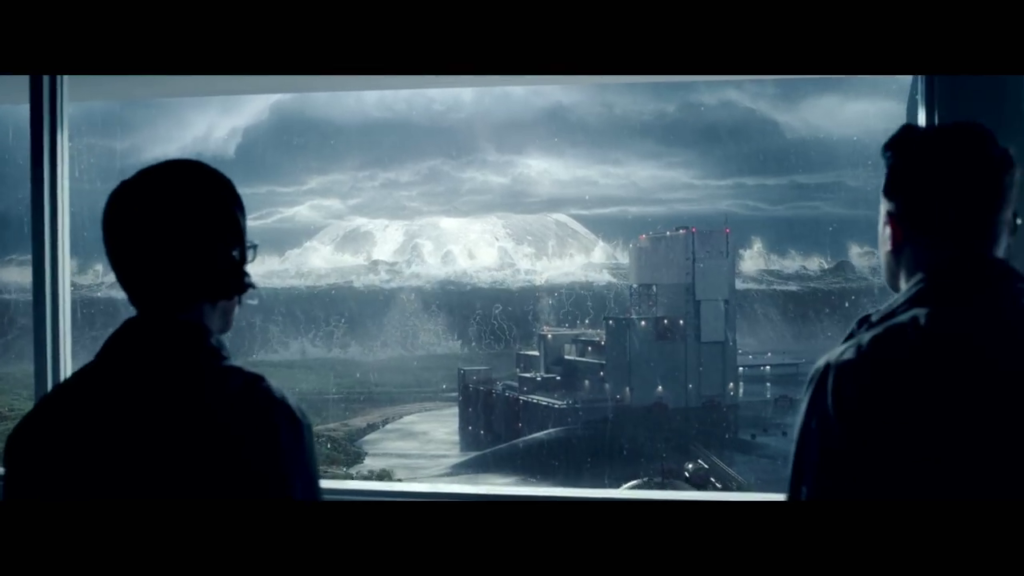
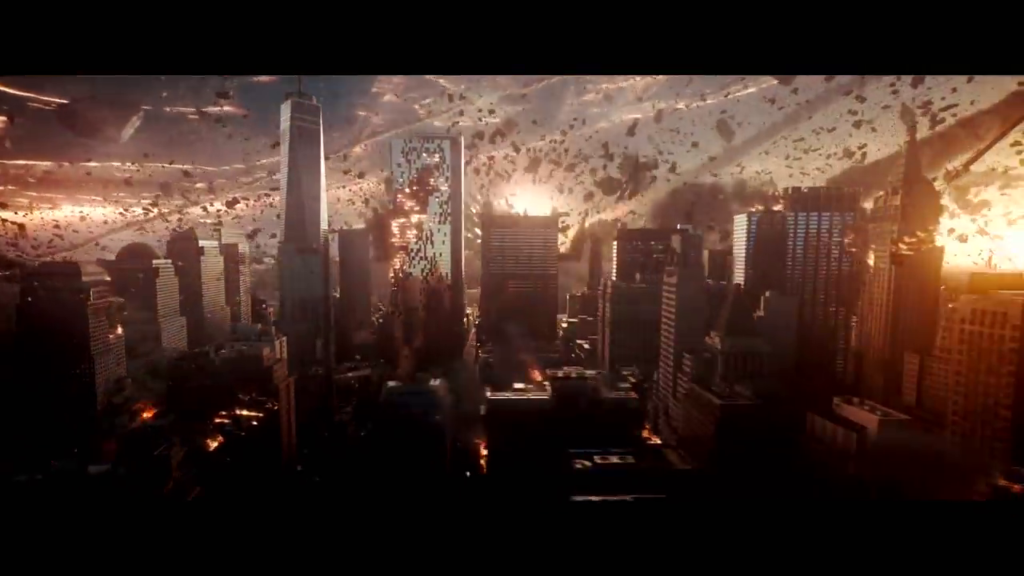
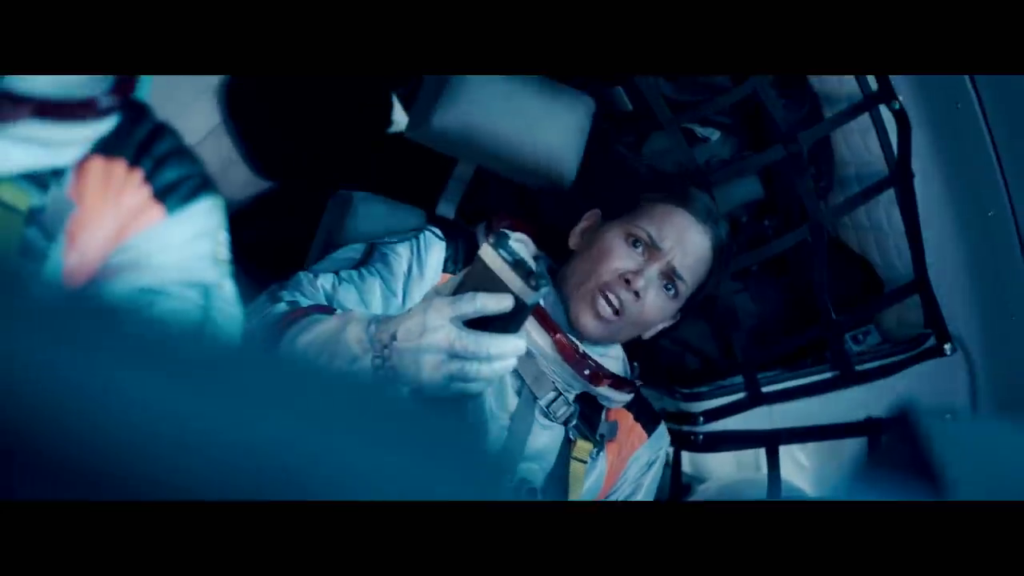
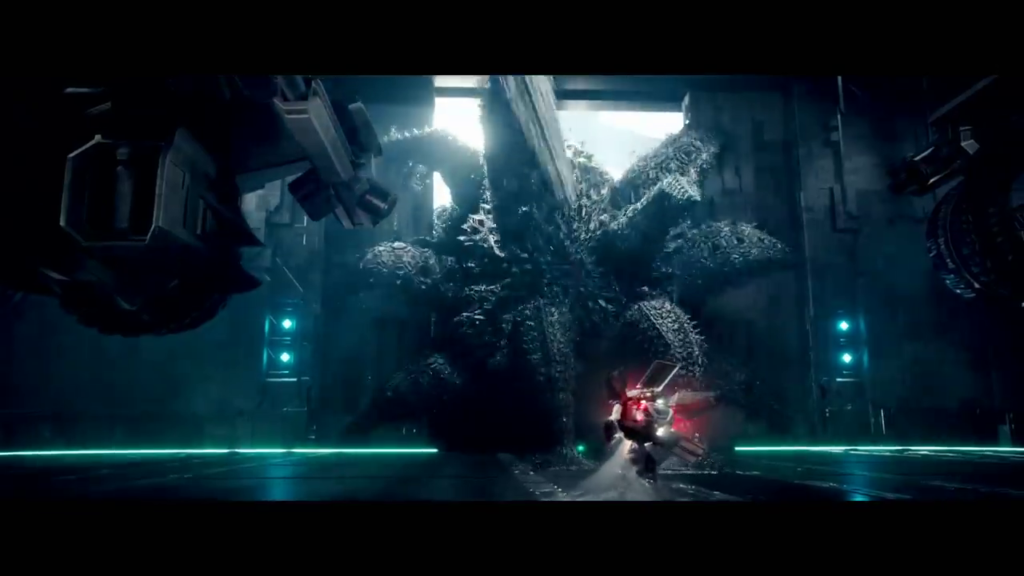
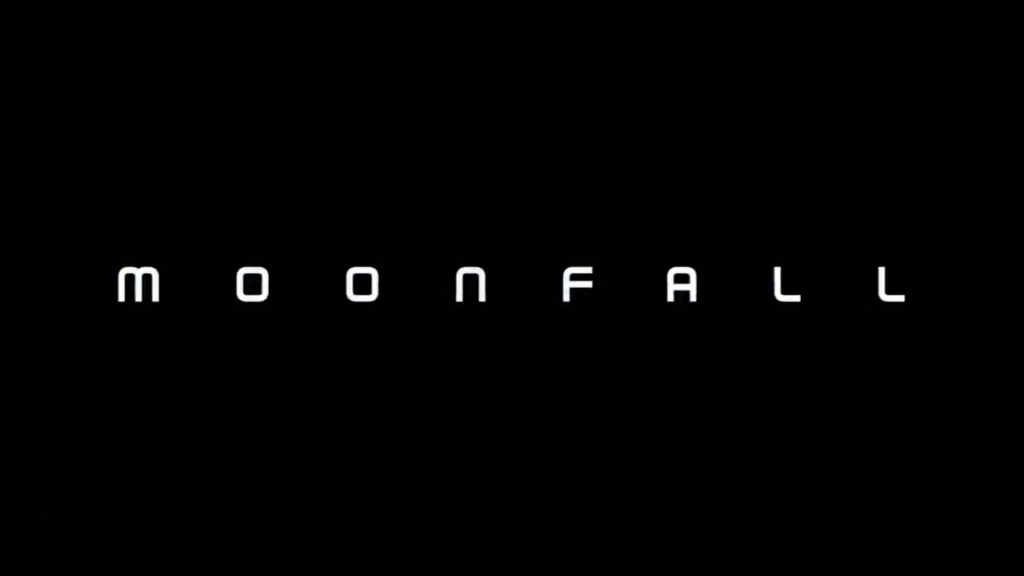
Moonfall (2022)
Film review #573
Director: Roland Emmerich
SYNOPSIS: K.C. Houseman, a conspiracy theorist, uses a research telescope to confirm his suspicions that the moon’s orbit is changing and moving closer to Earth, and will eventually collide with it. NASA eventually confirm the findings and mass panic ensues. They send a rocket up to the moon to investigate, but the shuttle is attacked by a mysterious entity. Brian, an astronaut who was fired in disgrace after a space mission he was on was similarly attacked and no one believed him, leaving his reputation destroyed, is now tasked with one more mission to try and stop the moon from destroying the Earth…
THOUGHTS/ANALYSIS: Moonfall is a 2022 sci-fi disaster film. The plot, unsurprisingly, revolves around the moon falling to Earth. Conspiracy theorist K.C. Houseman, who believes that the moon is a artificial superstructure, and its orbit is decaying. It turns out he is right, and when NASA confirms it, mass panic sets in across the world. A shuttle mission to investigate the moon is attacked by a strange entity, and destroyed. It turns out to be the same entity former astronaut Brian Harper claimed attacked his mission ten years before, but as no one believed him, and was sacked and his reputation tarnished. His former crewmate Jocinda Fowler, who is now deputy director of NASA, recruits him to lead one more mission to the moon to try and correct the moon’s orbit before it collides with the Earth. The film is quite simply a combination of the films Armageddon and Independence Day. In fact, the director Roland Emmerich also directed the latter, so I’m pretty sure it was deliberate. The realism of a disaster film just doesn’t work well with the plot about aliens and rogue AI and whatnot, and a lot of stuff is just skimmed over. A lot of the plot points make very little sense, such as why the A.I….thing would just hide in the moon and try to bring it down, rather than attack the planet directly if that it was aiming to do. There doesn’t feel like there’s much of an attempt for the film to carve out its own identity, rather just picking bits from what previous films have done successfully. Then again, the sheer cheesiness of the plot and setups might make for mindless, entertaining viewing, but it’s definitely hard to take it seriously.
The characters are all fairly cookie-cutter with nothing really distinguishable. Brian and Jocinda are just very standard lead roles, and K.C. Houseman provides the comic relief with one-liners that aren’t memorable or really funny. The trailer for the film has him respond with a quip after every scene or serious moment without rest, and while it’s okay to lighten the mood once in a while, doing this constantly really stops the suspense and story dead in its tracks. The characters also have their own families who are trying to get to safety, providing a perspective from “ordinary” people on the disaster that is unfolding: again, just like Independence Day. None of these characters stand out in particular, and their scenes feel like they’re there to pad out the runtime. With the film coming in over two hours and ten minutes, the film definitely feels padded.
When the mission makes it to the inside of the Moon, they discover the inside is a Dyson Sphere: a man made structure with a white dwarf star housed inside to power it. We are also treated to a lengthy exposition about how humans once existed on another planet but were destroyed by a rogue A.I., so these superstructures were sent to potential habitable planets to populate them with the DNA of human life, but the A.I. thing (I don’t really know what it is) has now found Earth and is causing the moon to fall to destroy the humans. It’s nothing you haven’t heard or seen before, and lumping in all this stuff near the end does detract from the disaster theme a little. The ending feels like it’s very much on auto-pilot, as Brian encounters a “good A.I.” or something, and somehow now knows how to pilot around the superstructure to destroy the bad A.I., which ruins any kind of tension in the climax. In terms of effects and CG, it’s actually not too bad: you get a good sense of the scale of destruction in the landscape shots, but the effects of the Moon’s effect on gravity is entirely inconsistent throughout, and it can mostly be explained away as it’s for the purpose of the plot. Anyway, Moonfall is a mash-up of what you’ve seen before, with Roland Emmerich doing exactly what you expect in producing an over-the-top disaster film with a very typical cast of characters. It’s plot is all over the place, and is completely implausible most of the time. It is a brainless, cheesy sci-fi film that may serve as a silly ride that might entertain, but you’re going to struggle to believe anything in the movie is plausible.
-
#562 – Avatar: The Way of Water (2022)
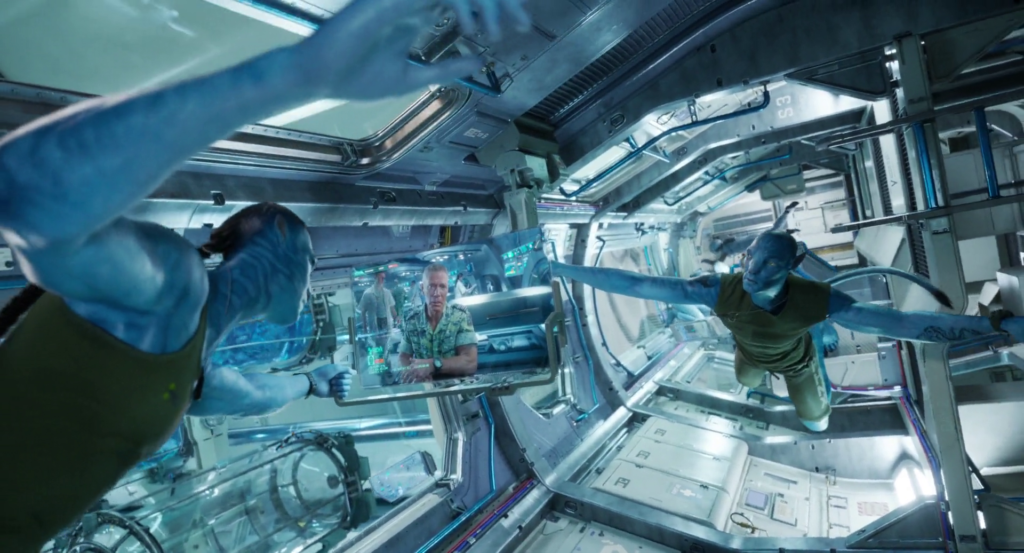
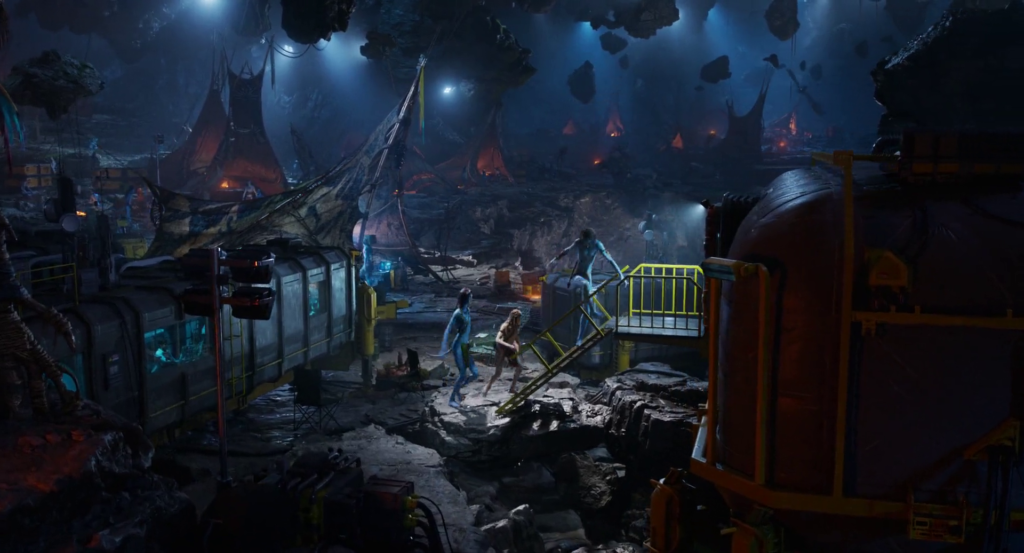
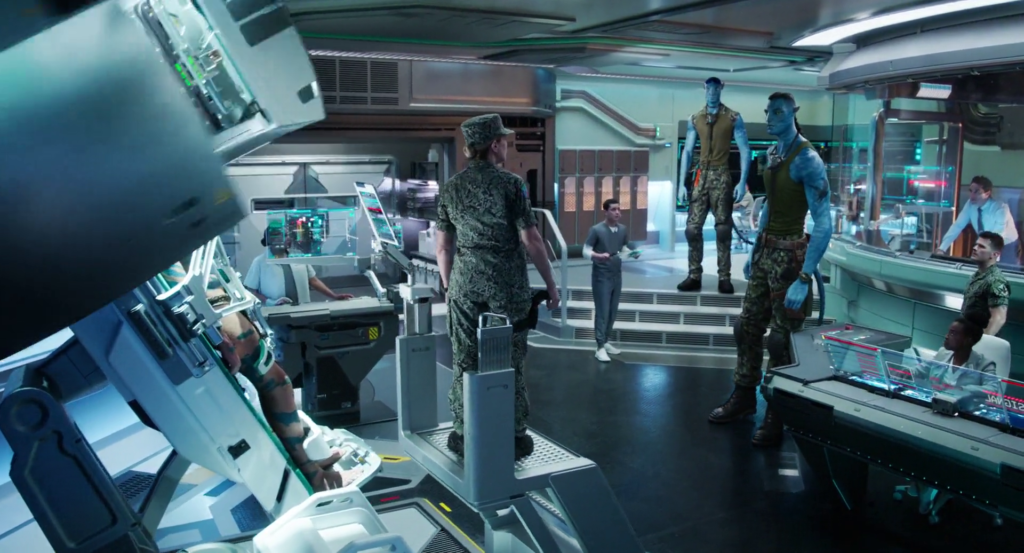
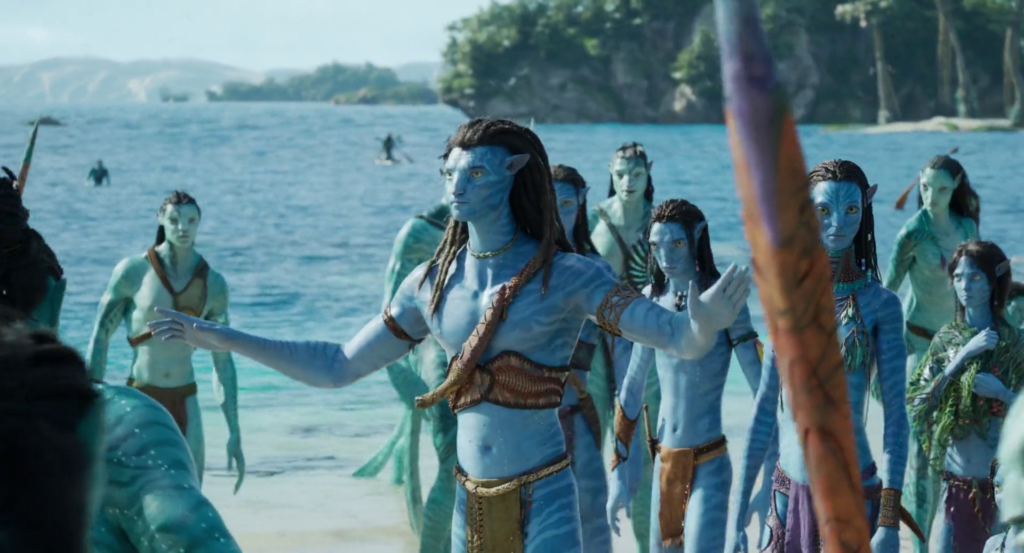
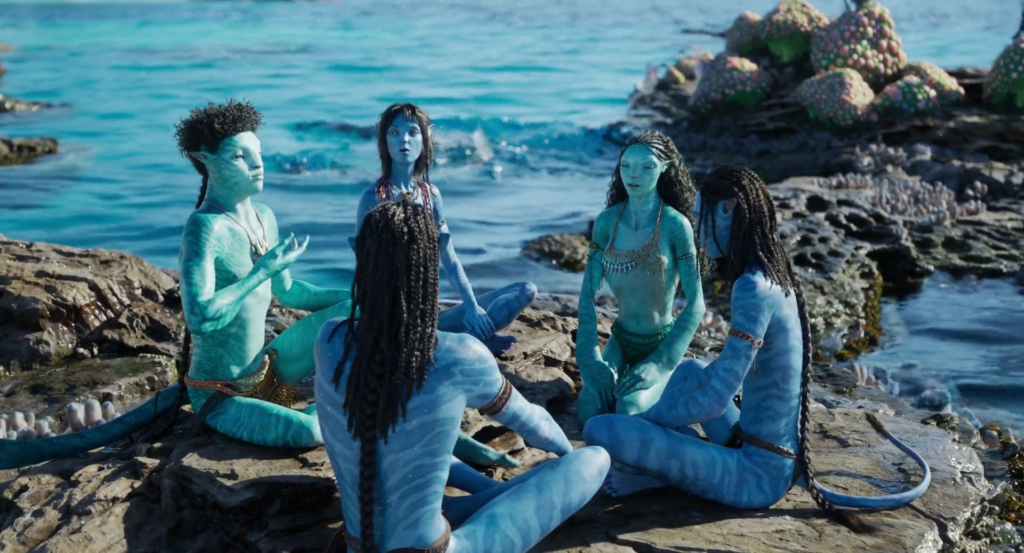
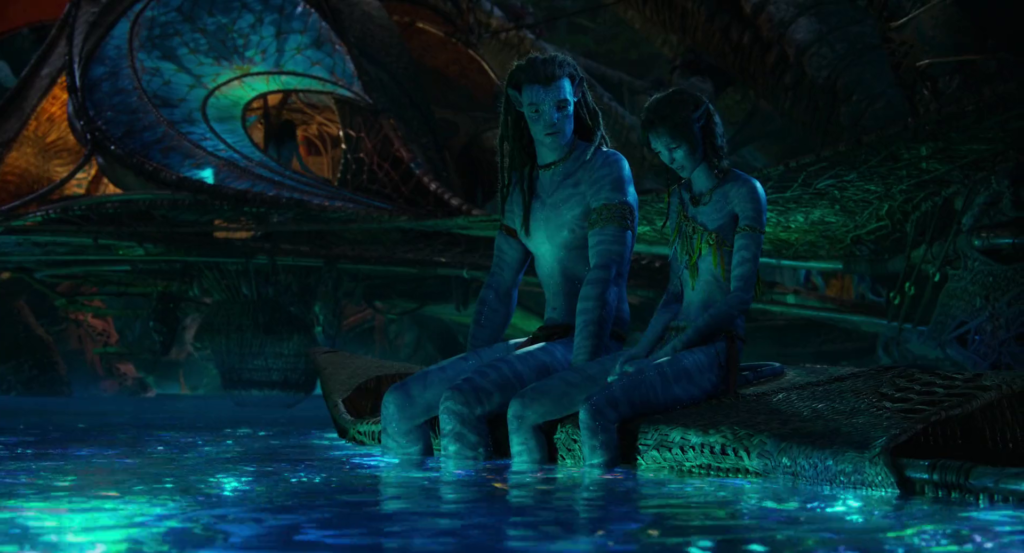
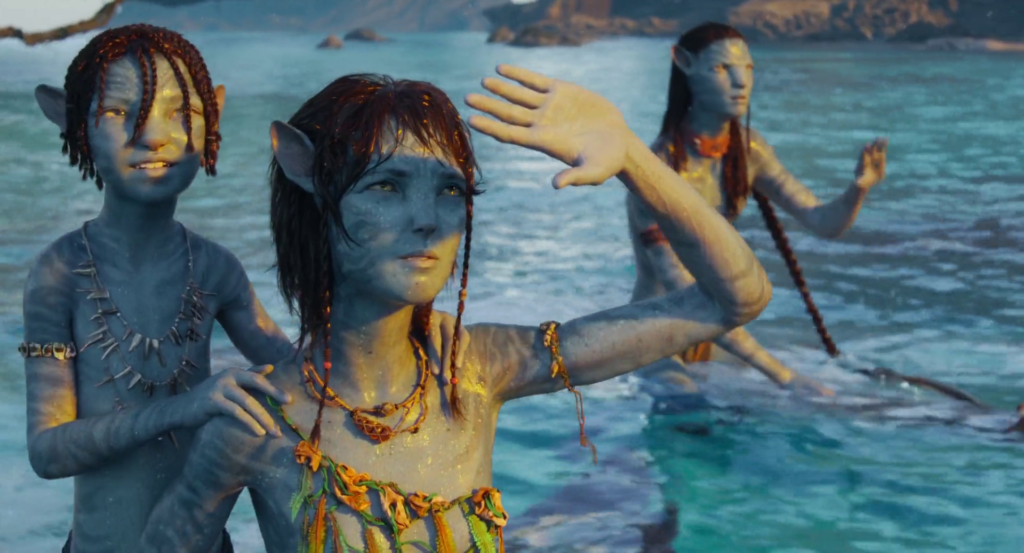
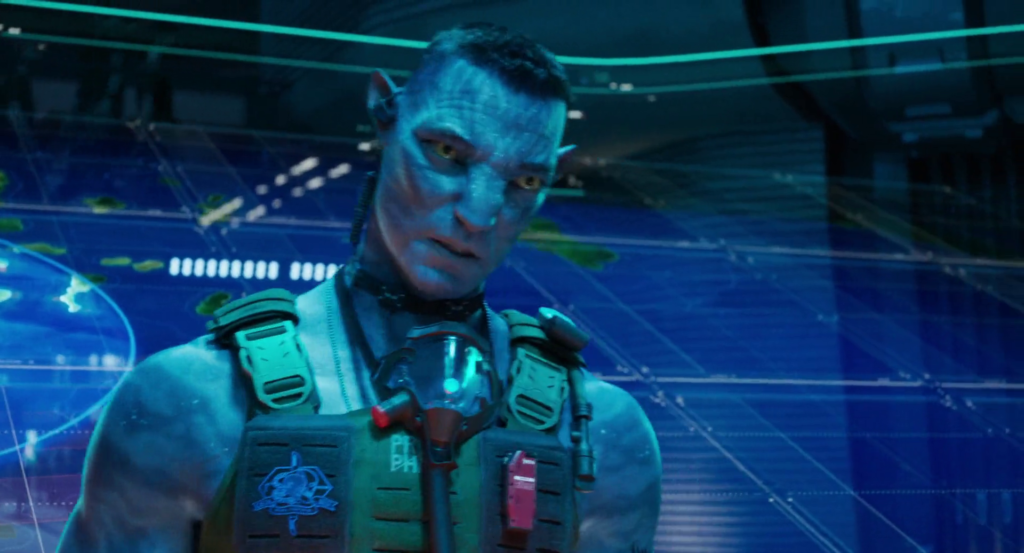
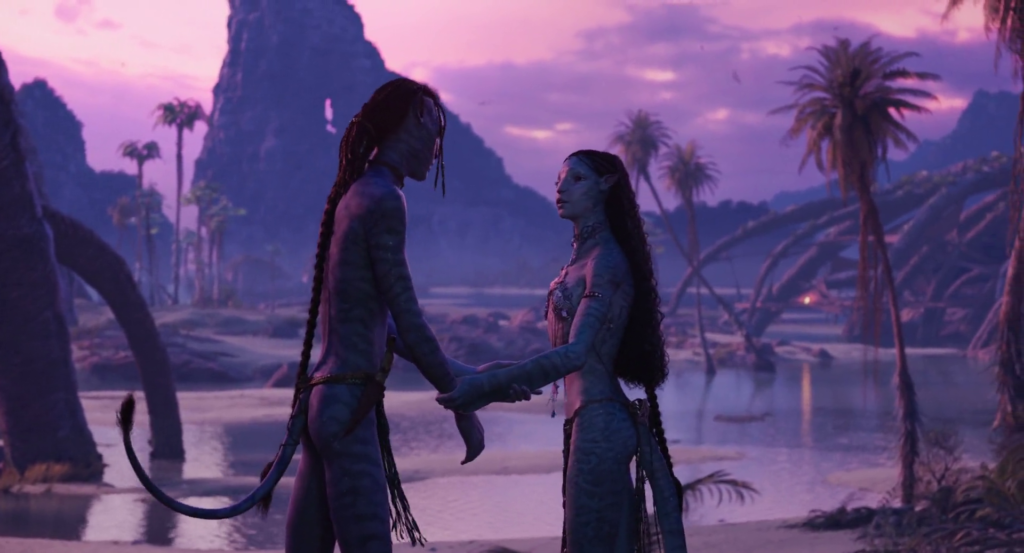
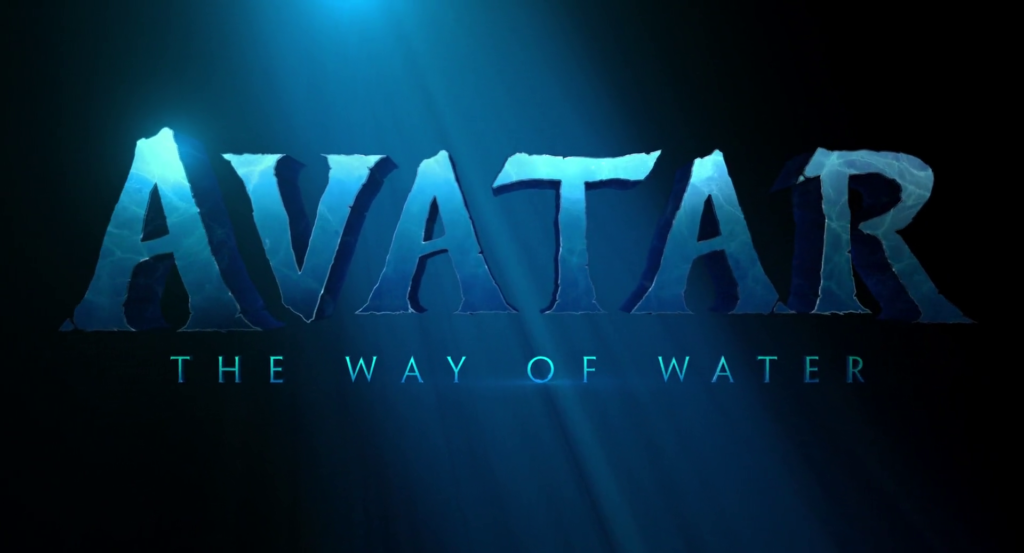
Avatar: The Way of Water (2022)
Film review #562
Director: James Cameron
SYNOPSIS: Humans have returned to the planet Pandora in an attempt to colonise the planet in the face of a dying earth. The native Na’vi race attempt to fight back, led by Jake Sully, but seeing that he and his family have become the target and putting their entire people at risk, Jake decides to leave with his family and find somewhere new to live. They find a tribe who live by the ocean who offer them sanctuary, and the family must learn their ways. However, Colonel Miles Quaritch, who was seemingly killed at the end of the previous film, backed up his memories and has been reborn into an avatar Na’vi, with the aim of getting revenge…
THOUGHTS/ANALYSIS: Avatar: The Way of Water is a 2022 film and a sequel to the 2009 film Avatar. In my review of Avatar, I made it quite clear that I had no love for any part of the film; I would easily put it in the top five of the worst films I have watched. So needless to say, I had very low expectations for this film, and my judgment is obviously biased on it from the outset. The story opens up with Jake Sully, the protagonist of the first film, narrating how after humans were forced to leave the planet by the native Na’Vi population, several years later, they just…come back because they feel like it, which seems to make the accomplishment of the first film seem somewhat worthless. Anyway, the humans pick up where they left off, and the Na’vi, led by Jake Sully, become guerrilla fighters disrupting the human expansion. Eventually, Jake becomes the target himself, and to keep the tribe and everyone safe, he relocates his family elsewhere, to seek sanctuary with another group of Na’vi. Well, that’s his logic anyway, but one: it seems obvious that he will be pursued wherever he goes. And two: the humans wouldn’t just stop their expansion just because Jake disappears. So anyway, Jake and his family come across the Metkayina, a tribe of Na’vi who live by the ocean, and ask for sanctuary there, which they are given. What follows is…basically the same plot from the first film: outsiders (Jake and his family) must learn the ways of the natives, and eventually end up leading them in the fight against invaders. When you boil the story down, it is just the exact same thing again, but in water (and even then, it’s whole philosophy about the ocean being the beginning and end of life etc. hardly gives you a new perspective on it). Fortunately, it is less of a “white saviour” affair where the outsiders come in and break all the rules and become their hero, but there’s definitely some of that still in there. It’s hardly uncommon for sequels to follow the same premise as their predecessors, but this film really needed to focus on worldbuilding and showing something new about the world the franchise is trying to create, and it just doesn’t. The majority of the plot is driven by a very simple setup repeated over and over again: the kids go wandering off where they shouldn’t, they get into trouble, and Jake and the adults have to bail them out. This happens again, and again, with each of Jake’s kids seemingly taking it in turn to go wandering into danger before being rescued. The film is accompanied by narration sparingly by Sully at random points, which gives the impression that the narration is only happening when the film can’t figure out a way to show what is going on itself.
The issue which compounds the issues of this film is that it runs over three hours long: the wafer-thin story is stretched well beyond it’s limit, and it doesn’t offer anything to justify this runtime. James Cameron defended the runtime by saying that people stream multiple episodes at a time, so a three-hour film is perfectly justifiable nowadays, but a film and TV series are different formats, and a film needs to be in some ways a standalone experience. This is not the film that is going to re-define cinema.
Sully is more or less the same person he was in the first film, but he’s also got a family now, so there’s all that added on top as well. Being the head of the resistance against the invading humans, he also treats his sons like his subordinates, having them address him as “sir.” This is not only a very typical father-son relationship we’ve seen before countless times, but also it doesn’t seem very natural: the humans arrived one year before the start of the film proper, so are we to assume that he treated his kids like this before the humans arrived, or he just became like this during the last twelve months of their lives? Other than that, Sully’s main role is to just rescue his kids after they get into danger, and to tell them off. Sully’s wife, Neytiri, is barely a character in this: from being the co-lead in the previous film who taught Sully the Na’vi way of life, here she barely does anything, and hardly has a character other than just being a Mother: she is an utter waste of a character: she has no story arc, no development, nothing. Their kids have somewhat of their own personalities, but they’re nothing special, and their character development goes nowhere. For example, when the family meet the new tribe, one of Sully’s sons, Lo’ak, clearly has an immediate attraction to one of the tribe members, as shown in the very typical slow-motion, bug-eyed cuts between the two, telegraphing very clearly what is going to happen. However, the film barely follows through on this, giving us one ambiguous scene with them. The film does this quite a lot: establishing that a very typical story arc is about to happen, but just leaving it half-finished, so you get the worst of both worlds: a predictable storyline telegraphed a mile off, but also never actually doing what it sets out to do. Another of Sully’s children, Kiri, who is actually Grace’s avatar’s child from the first film, is set up to have some sort of connection with the planet’s life force or something, but the film never does anything with it, and in the film’s finale it lets her save the family or something by letting her control some little creatures or something…it is just completely unexplained or unexplored, and not even in a purposely ambiguous way: the way it is revealed in the finale just feels like a cop-out to the danger set up there.
One of the most incomprehensible decisions the film makes for me is to bring back Colonel Miles Quaritch, the antagonist of the first film. For reference, he was the stereotypically cartoonish character in the first film: a Texan military veteran who acts like everything is a battle, and turns the planet into a warzone so he can reap its resources (the obviously named “unobtanium”). When he died at the end of the first film, it completed his arc, and also gave the opportunity to give the film a new villain, something more complex and interesting. But no: they just bring him back by having a “back up” of his memories etc. uploaded into an avatar, repeating the same premise as the first film. There is an attempt to try to develop his character: by making his grudge against Sully the main focus, and him, as an avatar, try to adapt to using his new body on the planet more effectively. But this is also developed poorly, and doesn’t really add anything to his character, and he’s still just the very typical, cartoon-ish villain he always was. Even giving him a son to try and form a bond with is just ill-conceived and all over the place. The film also again cops out of killing him at the end, and apparently he will remain as the main antagonist through the other sequels. It just seems like a missed opportunity to bring back one of the most unoriginal characters from the first film whose story was resolved instead of trying to do something new. The rest of the humans are also fairly boring and one-dimensional: General Frances Ardmore is in charge of the new human expansion, as apparently earth is now dying, and they want to colonise Pandora (it is never explained further than this). After the first hour, her character disappears and is never seen again. The “whaling” captain is also just another typical villain without much interesting going on. The whole “hunting” arc is also very overblown, with a very long scene explaining in detail how the humans hunt the whale-like creatures, and the film just stops for a good ten minutes while it explains how these imaginary creatures are hunted for no reason. Obviously it’s meant to be a mirror for how whales are actually hunted, but this repeats the problem of the first film of being very literal with its metaphors: where giant bulldozers knocked down giant trees as a not-so-subtle reference to environmental destruction. It turns out that the whale-like creatures are hunted for a little bit of brain matter that apparently stops human aging. Sounds interesting, but is never elaborated or referenced again. I get that the film is not about humans or the state of human society, but driving the plot with the Earth dying and actual immortality could really do with a bit more elaboration.
Released thirteen years after the original film, The Way of Water had a lot of time to get things right, and also had to develop a new manner of filmmaking to capture the underwater performances. The visuals look decent for the most part, but there’s hardly anything original or interesting that made me think “Wow, that’s new and exciting.” the setting is obviously inspired by South-east Asia and Oceania, but it doesn’t really build something new with that inspiration. The animation is smooth for the most part, but during the more fast-paced scenes, the movements do look a bit off. Also in these scenes, the focus between the background and foreground characters is quite disjointed, and takes the characters out of their setting a little. Either way, the visuals and effects really aren’t of any interest to me as a movie-watcher: maybe if they have a distinctive aesthetic or style they are trying to develop, but this film doesn’t: as mentioned, it doesn’t build anything new on top of it’s real-world inspirations.
Overall, in case you couldn’t guess, Avatar: The Way of Water does little, for me, to improve or innovate on its predecessor. The story is threadbare and relies on the same set up of the kids getting into trouble and Jake having to rescue them over and over, alongside recycling the basic premise of the first film, just with water instead of a forest. The characters are pretty dull, including resurrecting one of the most bland characters in the antagonist, to relegating one of the main characters to nothing with Neytiri. All of this is made worse by an excessive runtime of three hours that I cannot see as justified. Maybe if you’re a fan of the first one, you’ll like this too, as it does continue the story, and gives you more of the same, perhaps too much, by resurrecting characters that didn’t need to come back. Otherwise, I have to put this on the same level of it’s predecessor as an uninspiring, long-winded, and unoriginal affair that generates no interest, vision or entertainment for me as a viewer.
-
#529 – Evil Bong 888: Infinity High (2022)

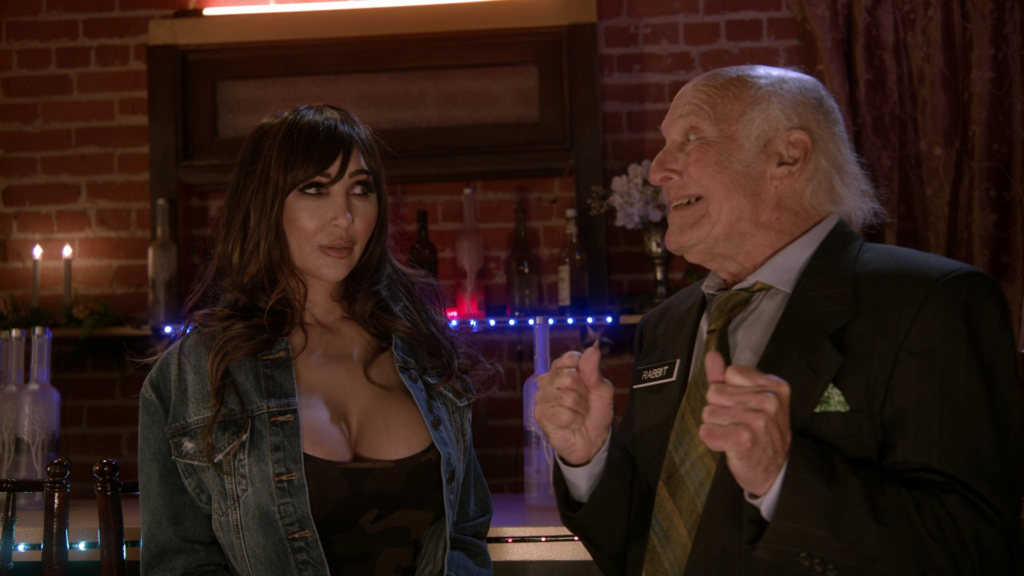
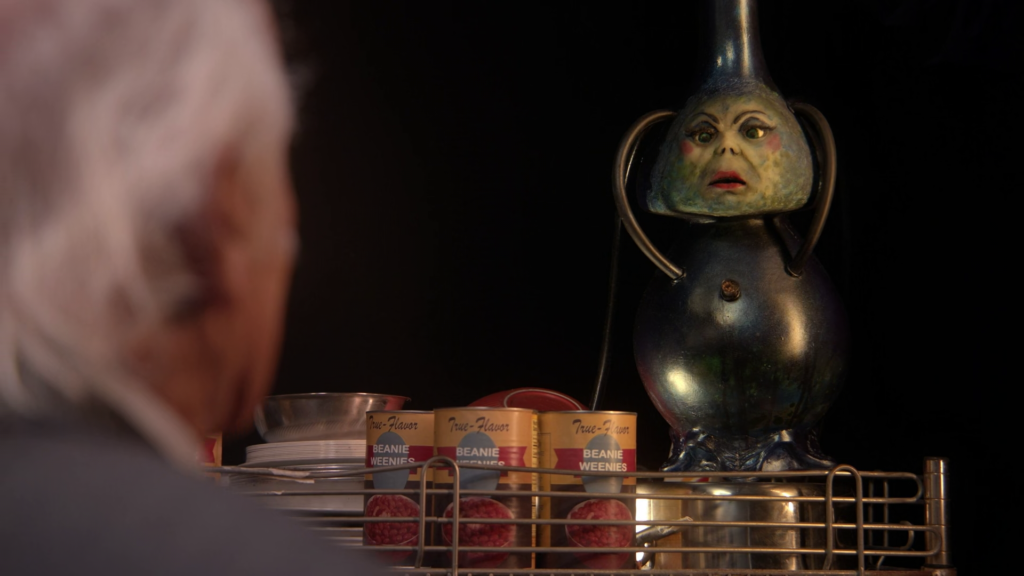
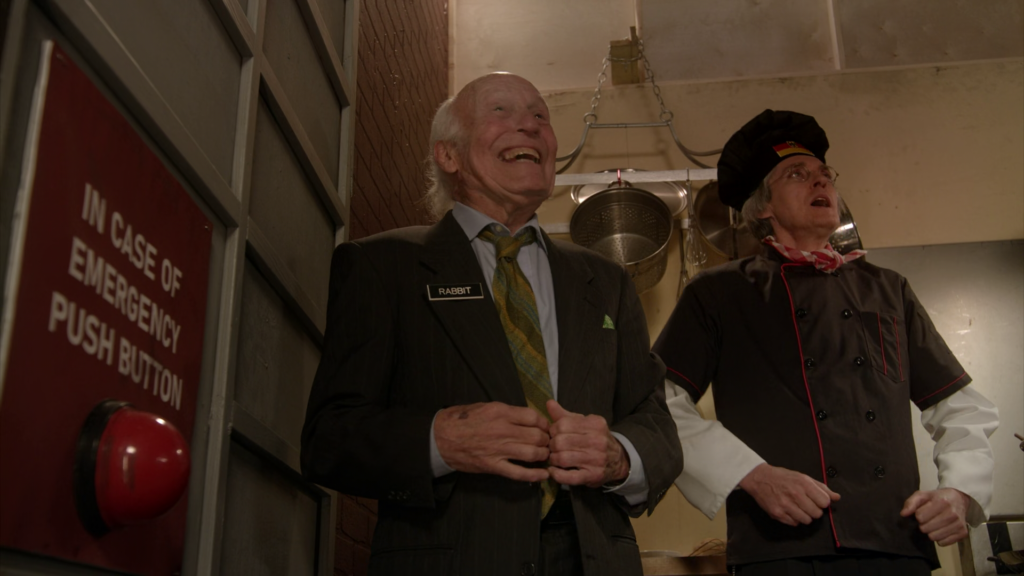
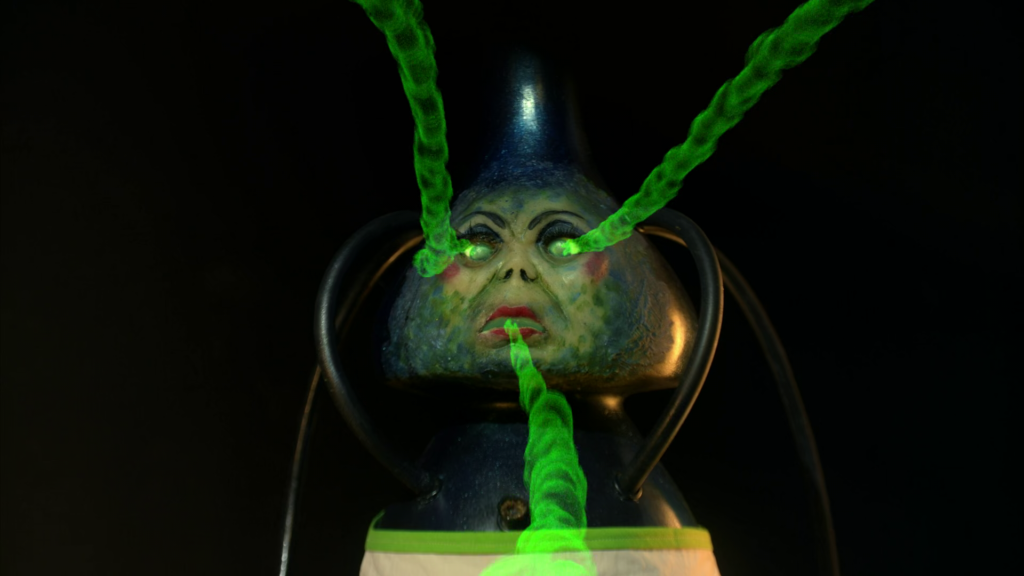
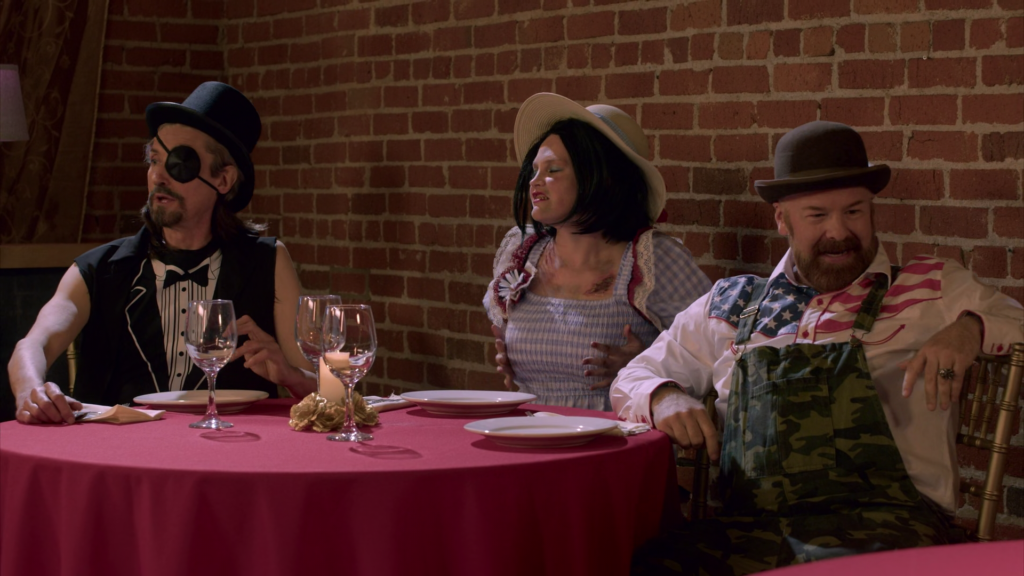
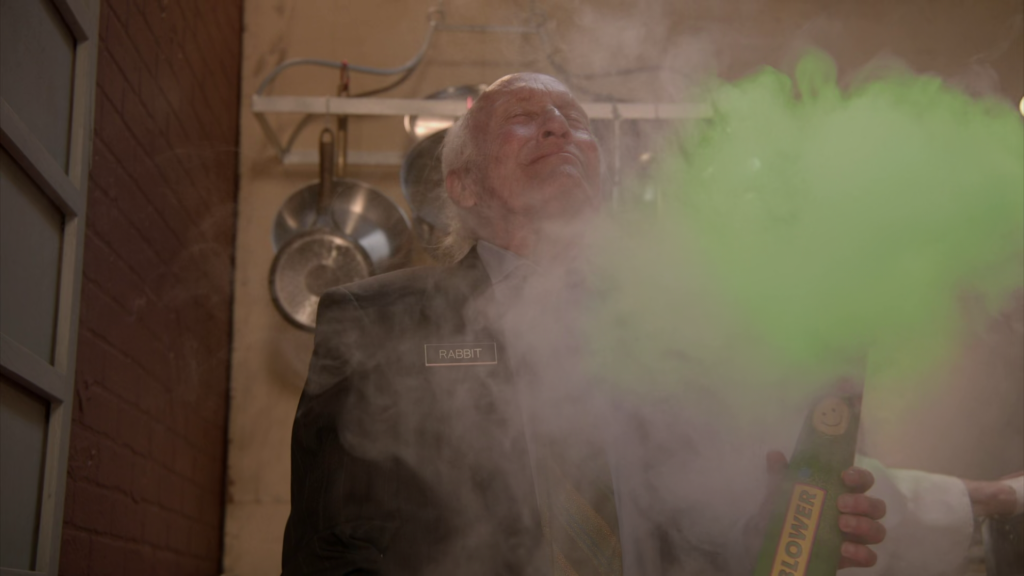
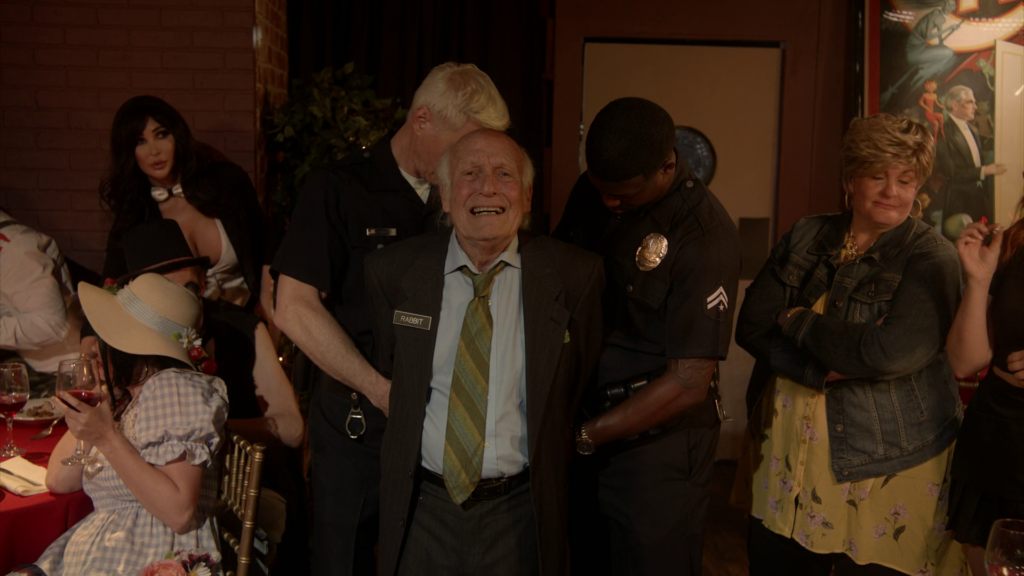
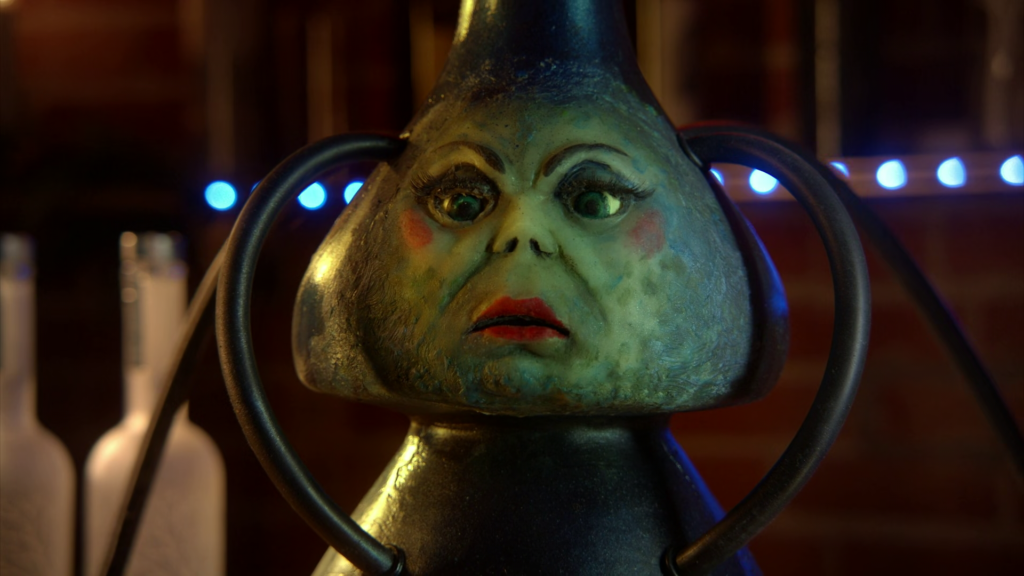
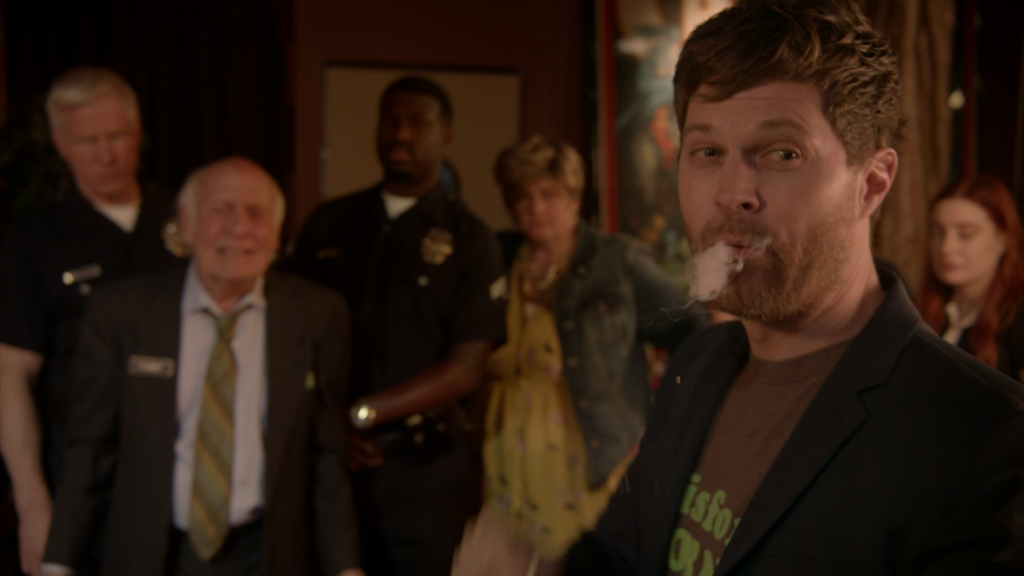
Evil Bong 888: Infinity High (2022)
Film review #529
Director: Charles Band
SYNOPSIS: Rabbit has opened up a new restaurant to try and go legit after his many weed-related adventures, with the evil bong, Ebee, working in the kitchen. However, many mishaps ensue, and tempt Rabbit to return to his old ways…
THOUGHTS/ANALYSIS: Evil Bong 888: Infinity High is a 2022 film and actually the ninth film in the Evil Bong series (if you’re counting Evil Bong vs. Gingerdead Man). The film opens up with series regular Rabbit preparing to open a new restaurant and attempting to go straight without smoking weed. Meanwhile the evil bong, Ebee, is helping out in the kitchen. If you’ve seen any of the other Evil Bong films, then you’ll know what to expect: a bunch of one-note characters come through the doors, and do their predictable humour, while the next characters come in and add to the scene. Everything that I have written about the previous Evil Bong films essentially just applies to this one: it is not a complex film, the plot is barely a plot, but the audience is people that are high and probably only aren’t going to follow any complexities, and just want to see some stupid, sexy or trippy stuff on screen. With a runtime of around an hour, at least the film does not overstay it’s welcome.
The film is, in some way, a return to basics (if you think the series ever evolved beyond “basics”), and takes out a lot of the characters and concepts that had driven the last few films, such as Lucy Furr, the Gingerdead Man, and Sexy Hell (yes, I did just write all of those things, and yes, they did happen). Although it’s unclear whether this is just because they couldn’t get any of the other actors to return; even though this hasn’t stopped them before from simply recasting a lot of roles. As such, we are left with Rabbit and Ebee, who became the only ones to appear in all the previous Evil Bong films. The “I tell you what” rednecks return doing their regular shtick, and even though they have been doing the same thing over numerous films, it’s strangely comforting to see them back doing the same thing, as it probably wouldn’t feel like an Evil Bong film without them at this point. The film also manages to bring back Larnell, one of the original characters, for the final few minutes, but he literally does nothing other than smoke a joint. The Gingerdead/Gingerweed man also make a brief cameo at the end, so there was at least some effort to acknowledge some of the other key characters of the series.
The film does try to be up to date with some it’s characters: you have a “Karen” who comes into the restaurant to complain, two teenagers who don’t know how to act in public post-Covid pandemic, and “Joe Exotic” (not actually him, in factm it doesn’t even look like him) It’s very little, and hardly biting social commentary, but it helps set the scene a little, and make the characters seem a bit more relatable (even though they are never anything more than clichés.) To balance this out as well, you also get the German chef named Sal Monella, whose personality is simply being German (you can probably imagine what that means). Again, it’s all simple stuff that doesn’t need to be anything more than what it is, but that doesn’t necessarily make it good.
Like most (all) of the Evil Bong films, the film has two sets: the restaurant, and the kitchen. Even then, quite a few of the scenes are obviously completely green-screened. It cuts back on trying to use CG and trippy special effects, and just sticks to having a laugh with the characters and tropes they have. Being as this is supposed to be the final Evil Bong film, it doesn’t really have a definitive ending or resolution, but at least it didn’t end on a cliff-hanger like Evil Bong 777 did (and which this film pretty much ignores). Overall, Evil Bong 888 is, as all of the films in this series are, crude, low budget, and without a plot. But as always, these films are meant to target an audience of people who are probably so high they are devoid of sense, so anything more complex than semi-nudity and weed jokes isn’t going to be truly appreciated. I think cutting a lot of the characters and lore it had built up helps the film in some regards by focusing on the characters that work, but it doesn’t offer anything new, or a definitive, satisfying ending to the series. I don’t think it’s the worst film in the series, as it attempts some relevant jokes, and returns some of the more memorable characters, but there’s still plenty of dull moments and flat jokes that would remain flat no matter how high you are. If you are familiar with Full Moon’s low budget films, you’ll recognise this as more of what they do, but if you’re expecting something entertaining that delivers something truly unique with its concept, you’ll be sorely disappointed: that ship sailed long ago.
-
#526 – Sonic the Hedgehog (2022)
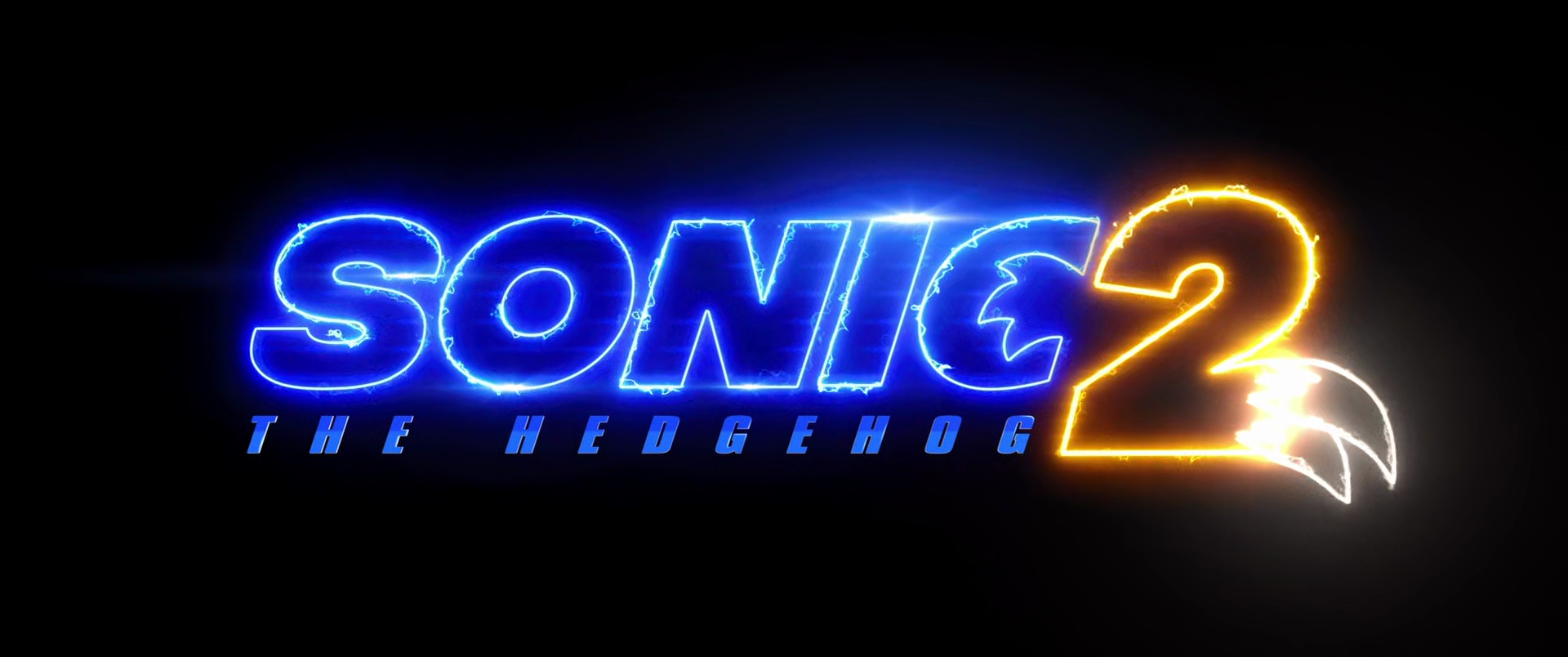

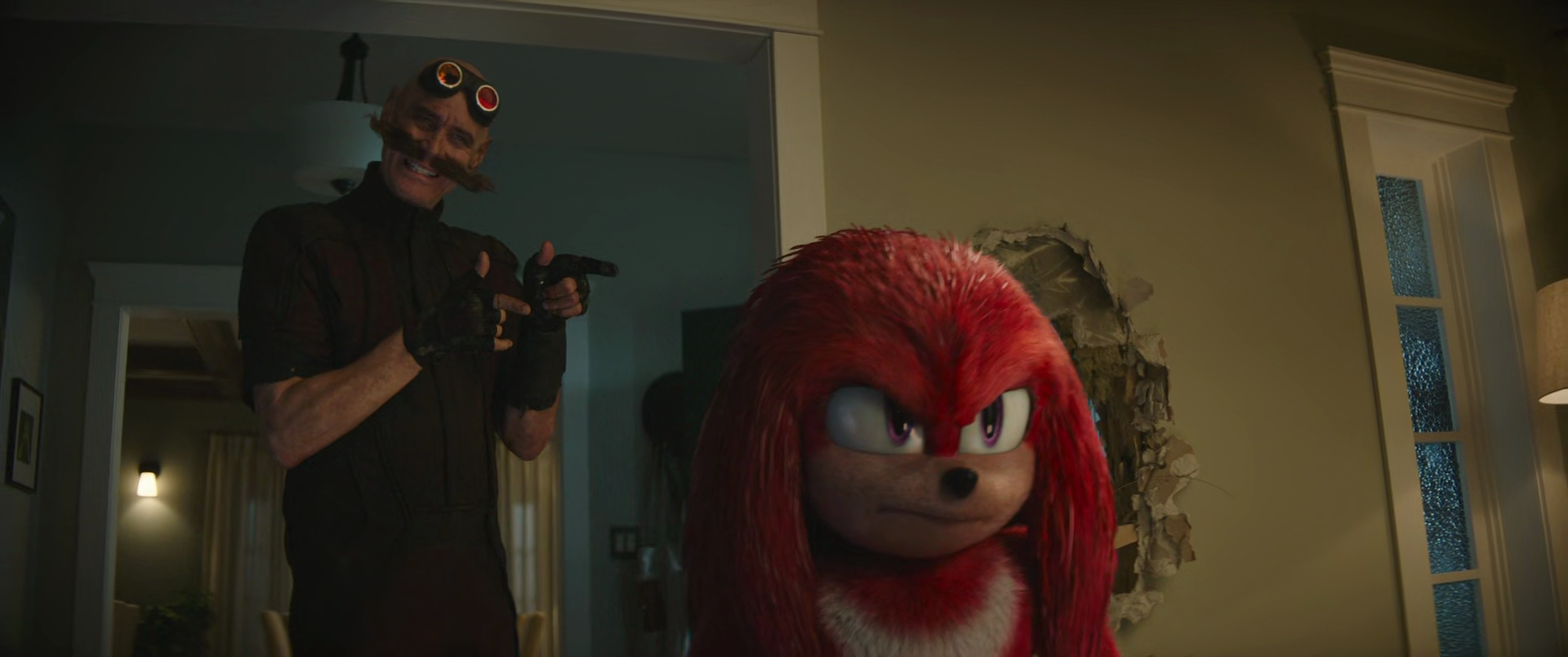
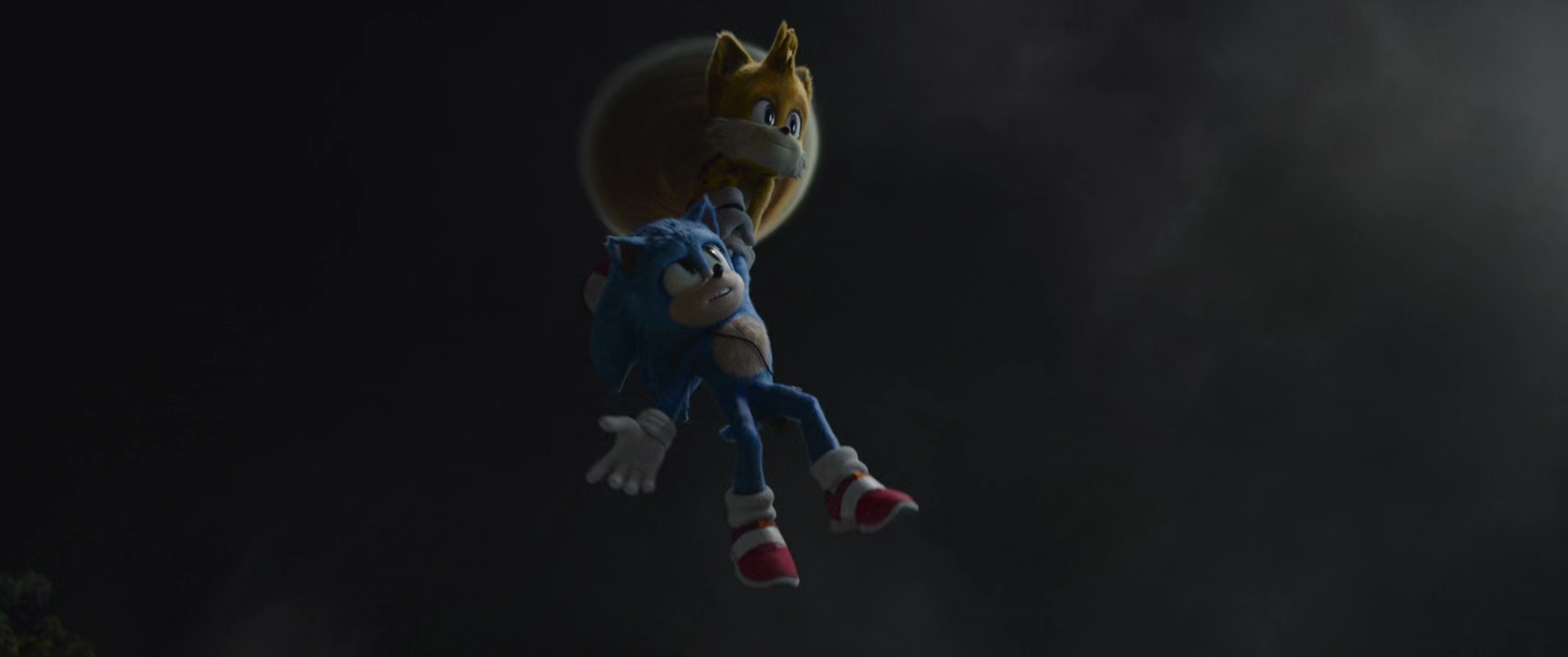
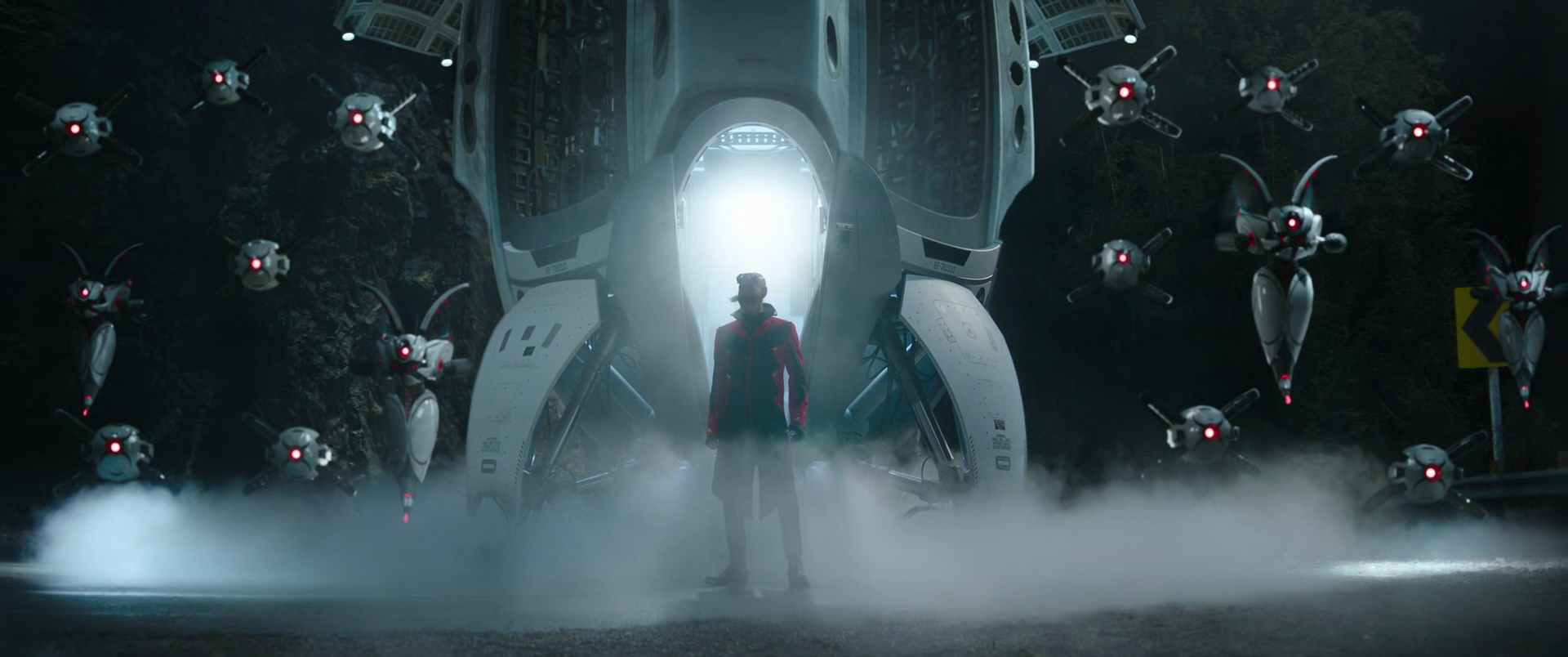
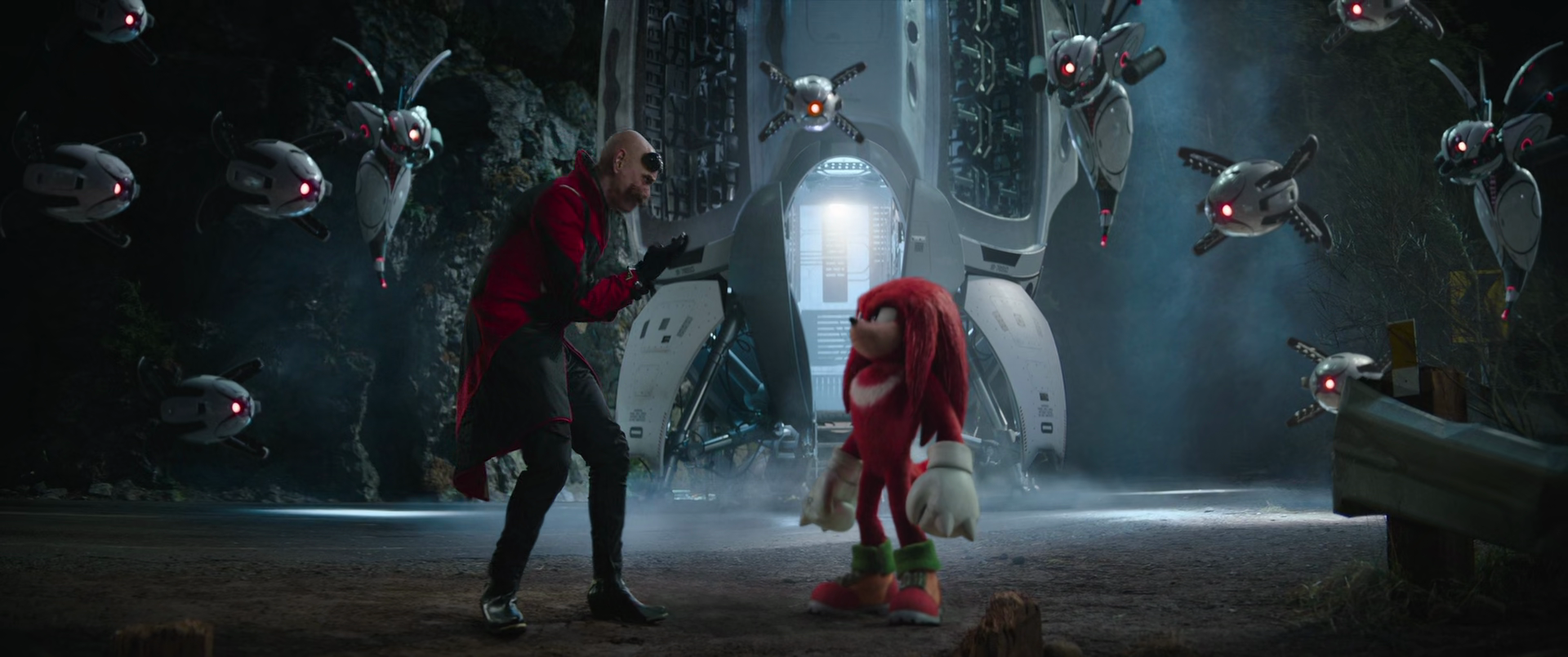
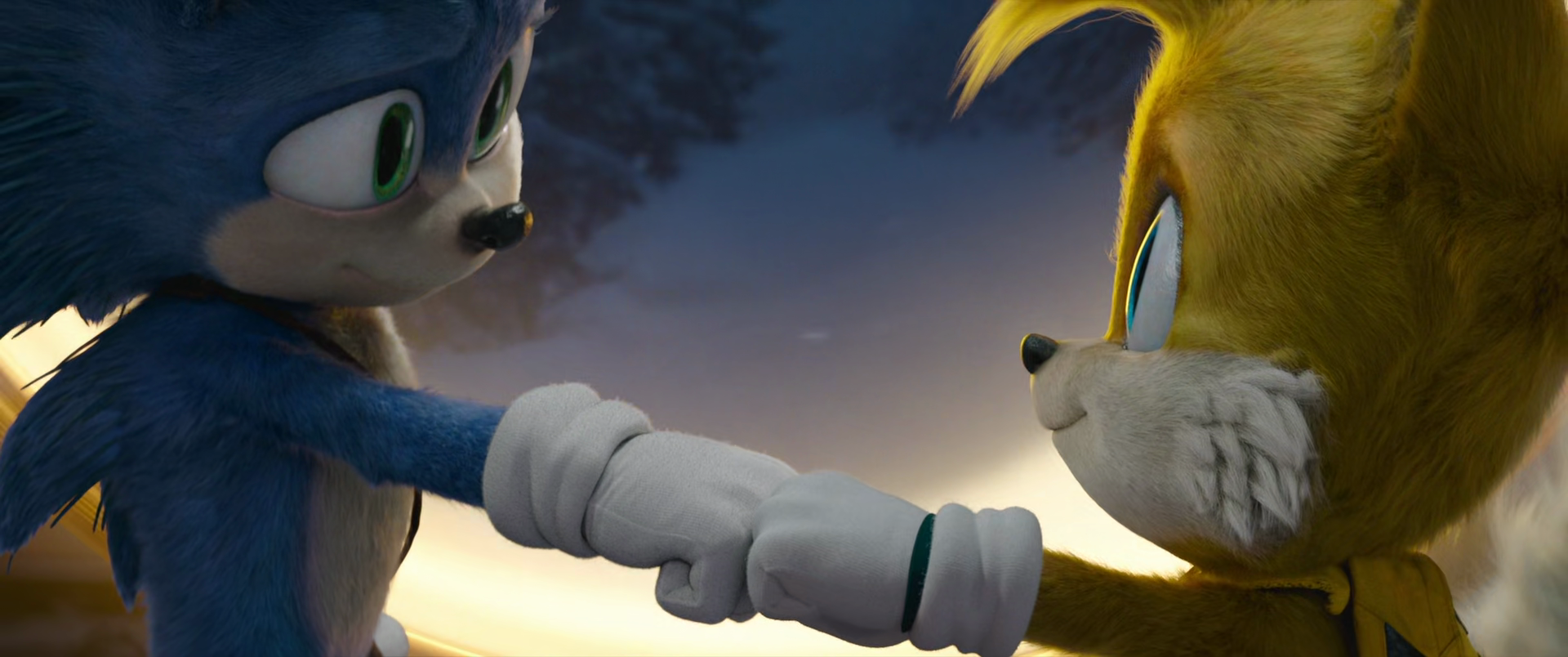
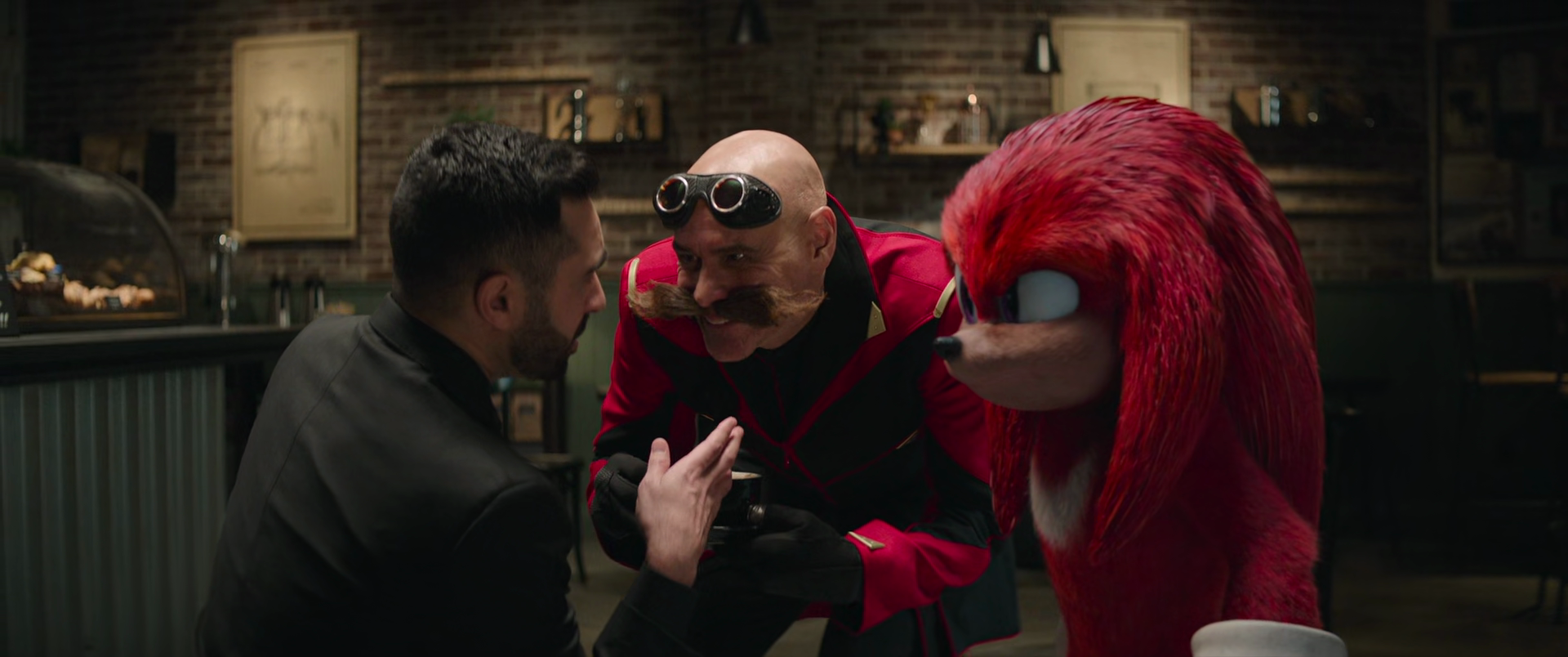
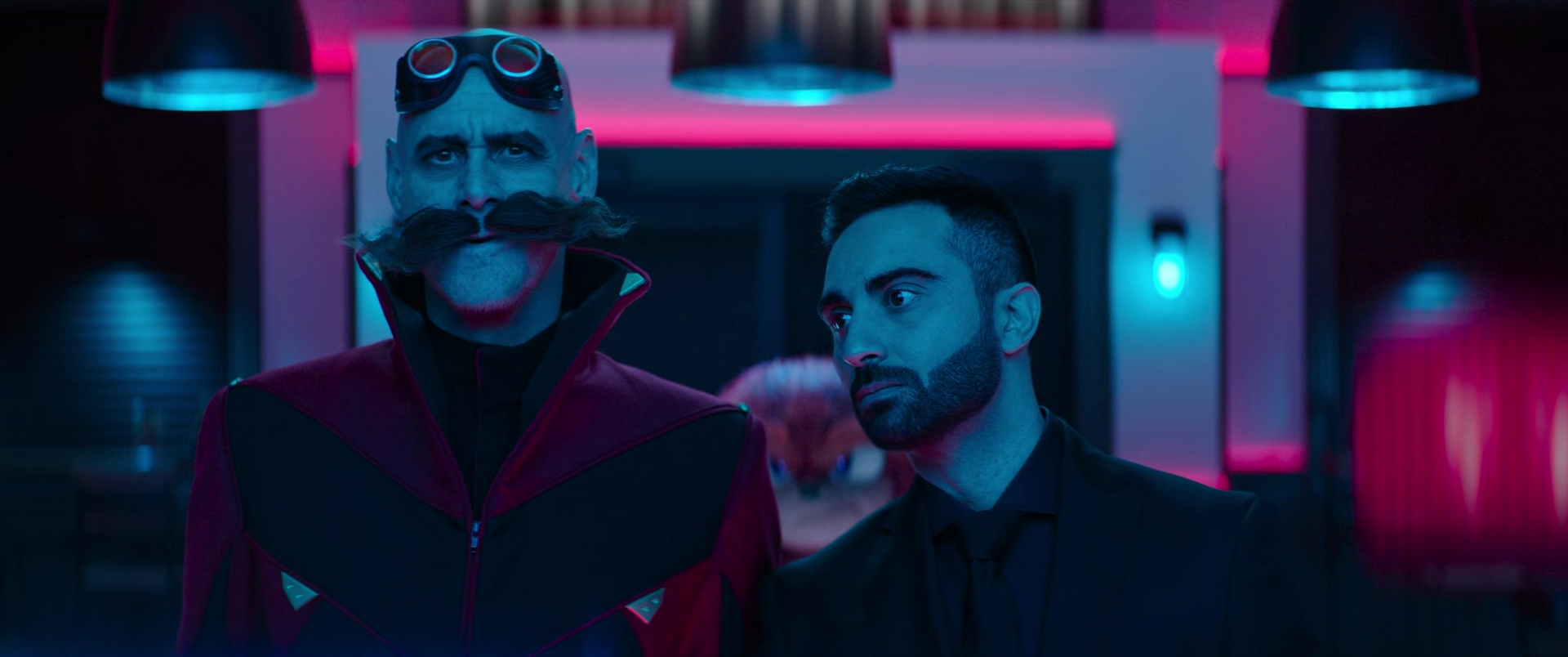
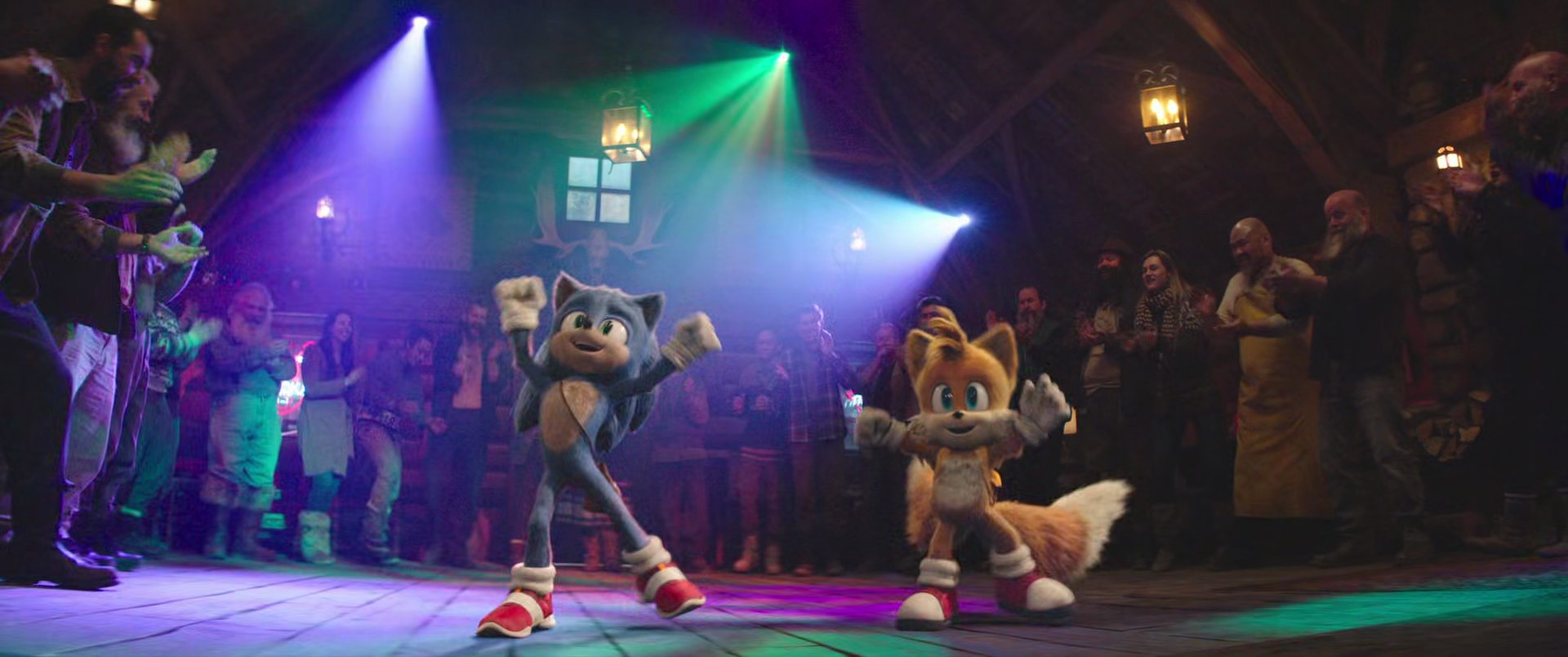
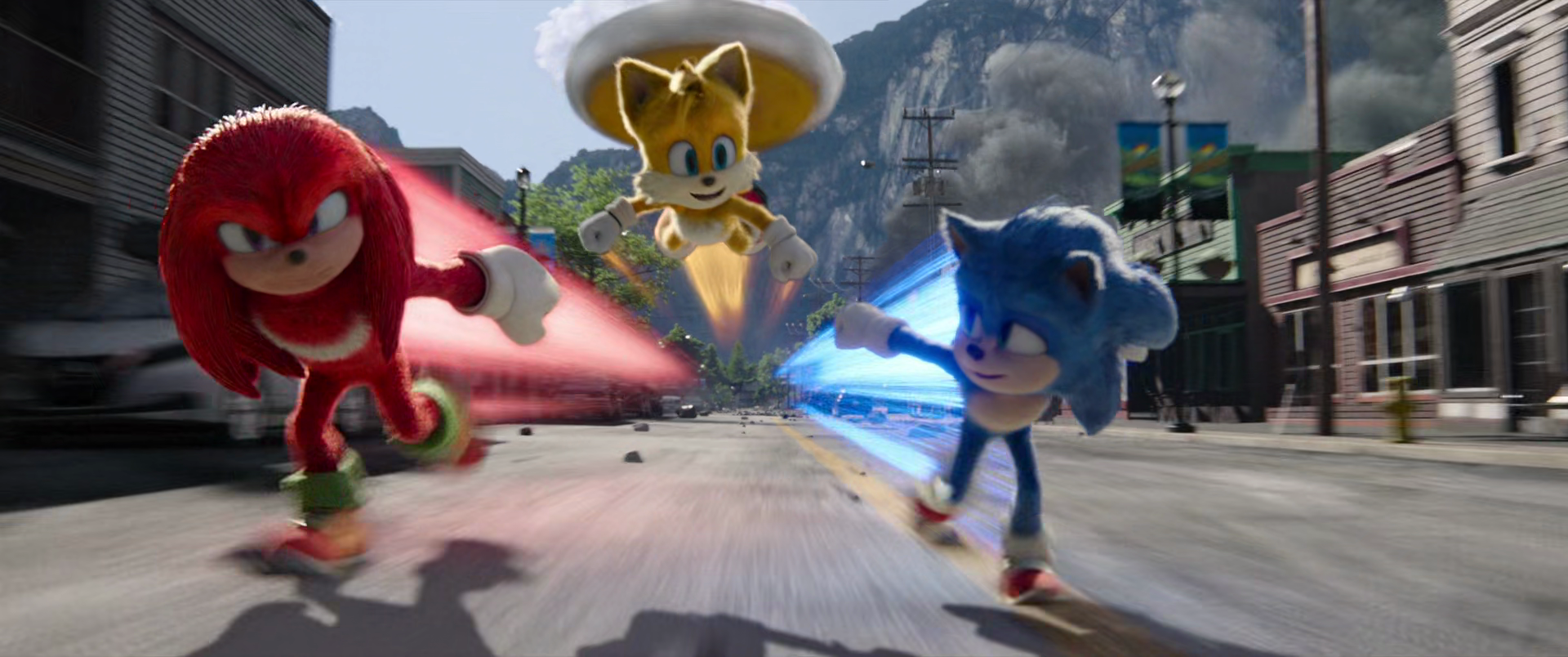
Sonic the Hedgehog 2 (2022)
Film review #526
Director: Jeff Fowler
SYNOPSIS: While Sonic the hedgehog struggles to be a hero on Earth, his nemesis Dr. Robotnik is making plans to return to Earth, helped by the mighty Knuckles the Echidna. Meanwhile, Sonic manages to get some help from Tails, a new friend who comes to warn Sonic of Robotnik’s return, and his quest to find the master emerald…
THOUGHTS/ANALYSIS: Sonic the Hedgehog 2 is a 2022 film, and the sequel to the 2020 film Sonic the Hedgehog. The film starts off with Sonic trying to use his powers for the best, and struggling to fit into the role of a hero. Meanwhile, Dr. Robotnik is trapped on a planet of mushrooms, looking for a way to get back to Earth and get his revenge. The story feels like one you would typically see in a sequel, with the characters being given new problems to overcome, and some attempt to develop their characters. It feels very similar to the first film, but that’s not necessarily a bad thing, as the first one was decent: nothing spectacular, but decent for its young target audience. However, I think the script could have done with another re-write or revision: the whole thing doesn’t really stick together very well, and the scenes feel disjointed, alongside the main plotline of the film getting lost through the mish-mash of scenes. The film does at least focuses on Sonic and his friends for most of it, and the story elements of the human characters is diminished, but this is what you want really. This also has the effect of having their story more self-contained and easier to follow than what Sonic and his friends are doing. At a runtime of two hours, the film could probably have been cut down easily by about fifteen to twenty minutes, and that is probably something that would have been achieved with another script re-write.
All of the characters from the original return, and have their own things to do. The introduction of Knuckles is a stand-out point, with Idris Elba voice the character and really making it his own. Probably the funniest moments in the film come from Knuckles and his over-serious nature. Jim Carrey brings the energy as Dr. Robotnik again, and Agent Stone is a good lackey for him. The introduction of Tails is a bit wobbly, and always feels like any explanation or development of his character is off-hand and implied. I think there should definitely have been more of a balance between the introduction of both Tails and Knuckles to properly flesh out both characters.
Overall, Sonic the Hedgehog 2 is a sequel that continues the work of its sequel without too much fanfare: it carries on the bits which worked and improves on them to some degree, while focusing less on the human characters (but even their scenes feel a bit more focused, even if they’re mostly just for the sake of comedy). It’s still aimed at a younger target audience, but it can still get a few laughs, especially when it relies on good old-fashioned comedy rather than making awkward references (although I’m sure the target audience will enjoy them still). There’s definitely some issues with the story not flowing and coming together, the long runtime, and the story of some characters not being integrated fully into the story, and as mentioned, I think most of these issues could have been addressed with another script re-write or revision. Nevertheless, its still an entertaining film for its target audience, and fits nicely alongside the first film.
